ASTM A335 P5
Read more
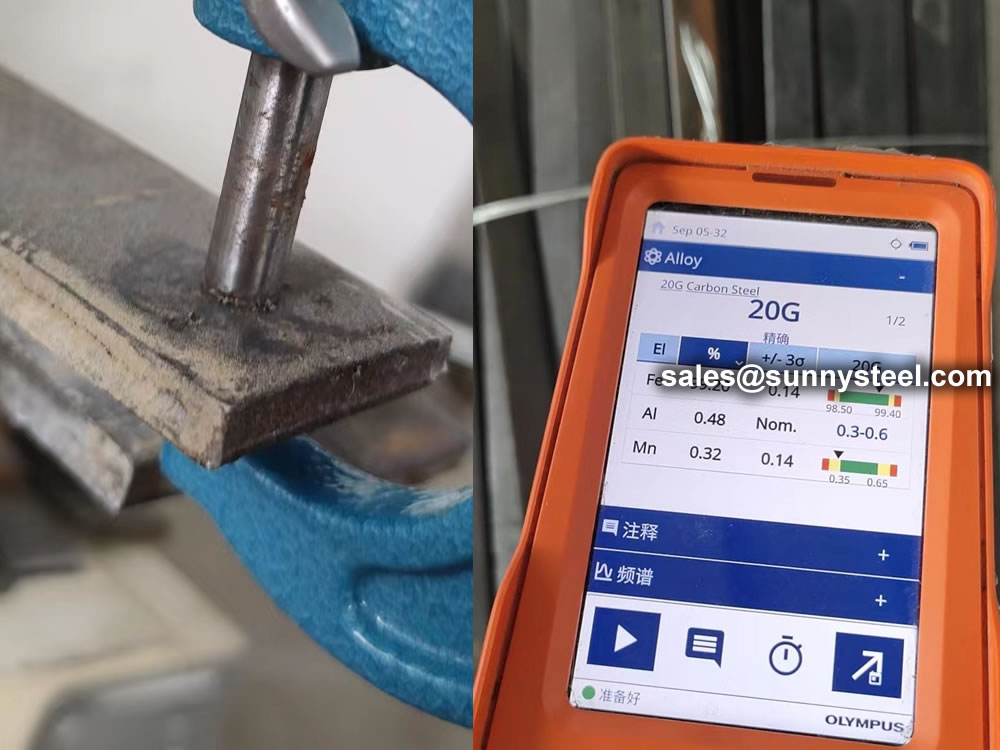
GB5310 20G steel bar refers to a solid, cylindrical metal component made from 20G steel material, as defined by the GB5310 standard.
This type of steel bar is commonly used in various industrial applications, especially in high-temperature and pressure environments, due to the material's properties that make it suitable for such conditions. It can be used in the manufacturing of components for boilers, pipelines, and other equipment where strength, durability, and resistance to high temperatures are essential requirements.
GB5310 20G steel bars exhibit several key characteristics that make them indispensable in industrial applications:
High Tensile Strength: The 20G steel's composition imparts impressive tensile strength to the bars, making them ideal for applications requiring structural integrity and load-bearing capacity.
Weldability: These steel bars are known for their excellent weldability, allowing for easy joining and fabrication in various construction projects.
Temperature Resistance: GB5310 20G steel bars retain their mechanical properties even at elevated temperatures, ensuring their reliability in high-temperature environments.

GB5310 20G steel bars play a crucial role in various industrial sectors, contributing to the construction of robust and reliable structures that require high tensile strength, temperature resistance, and weldability. Whether in boiler components, power generation equipment, or petrochemical installations, these steel bars provide the foundational support needed for efficient and safe operations. By understanding their characteristics and applications, industries can make informed choices that optimize their projects and ensure long-term success.
The versatile nature of GB5310 20G steel bars makes them suitable for a wide range of industrial applications:
Boiler Components: These steel bars find extensive use in the fabrication of boiler components such as superheaters, reheaters, and steam pipes, where their high strength and temperature resistance are crucial.
Power Generation: The bars contribute to the construction of power generation equipment that requires durability and structural integrity.
Petrochemical Industry: In the petrochemical sector, GB5310 20G steel bars are utilized in various components that handle high-pressure and high-temperature fluids.
Strength and Durability: The remarkable tensile strength of GB5310 20G steel bars ensures their ability to withstand heavy loads and challenging conditions.
Reliability: These bars are known for their consistent performance and resistance to deformation under stress, adding to the overall reliability of industrial structures.
Ease of Fabrication: The weldability and workability of GB5310 20G steel bars simplify the fabrication process, reducing production time and costs.
When incorporating GB5310 20G steel bars into construction projects, certain considerations should be taken into account:
Quality Assurance: Ensure that the bars meet the specified GB5310 standard to guarantee their mechanical properties and performance.
Application Compatibility: Verify that the bars' characteristics align with the specific requirements of the intended application.
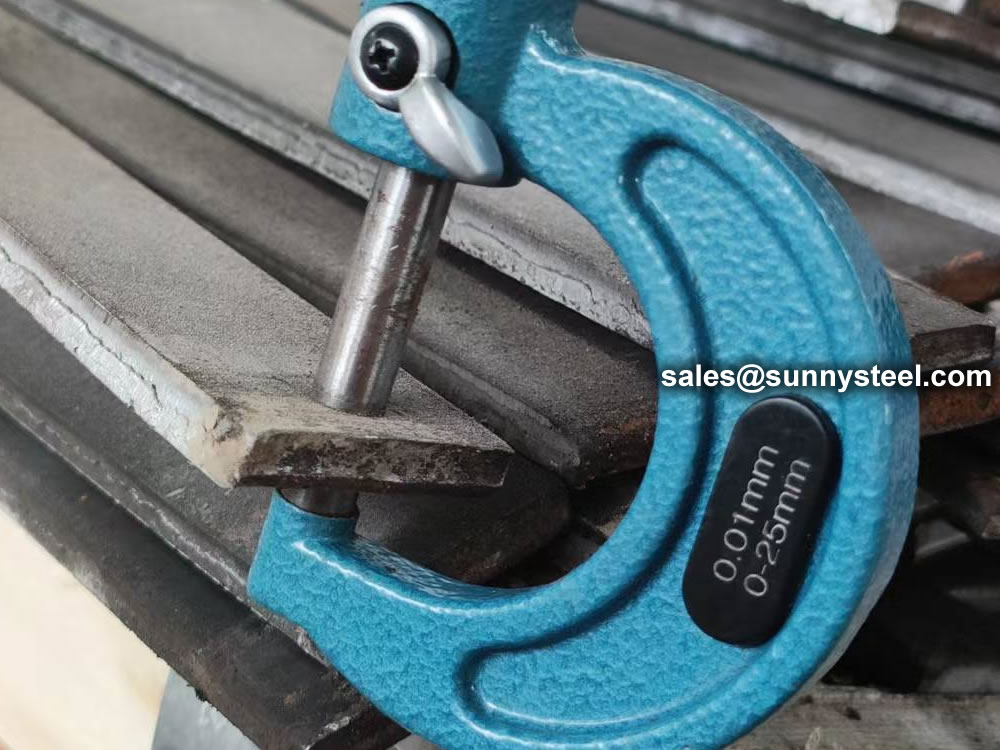
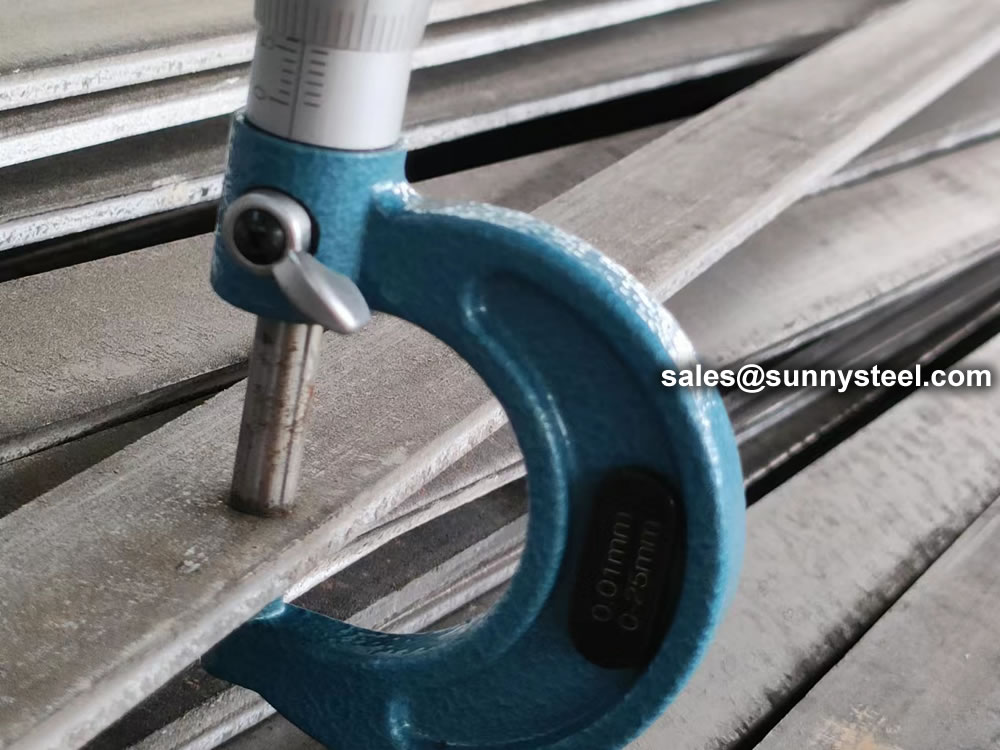
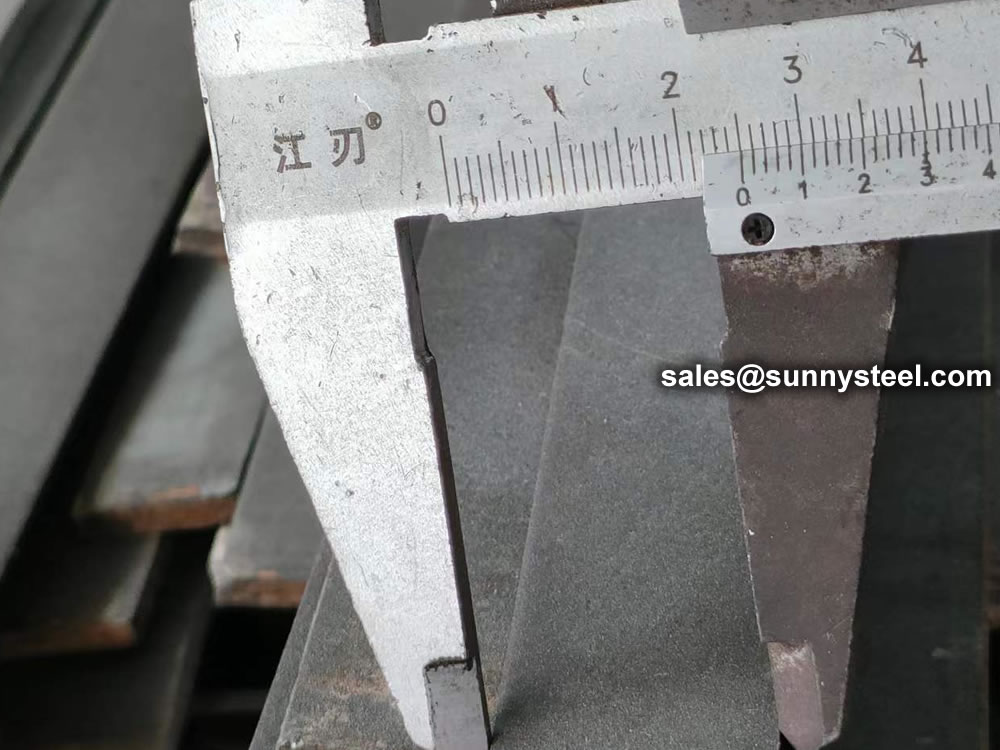
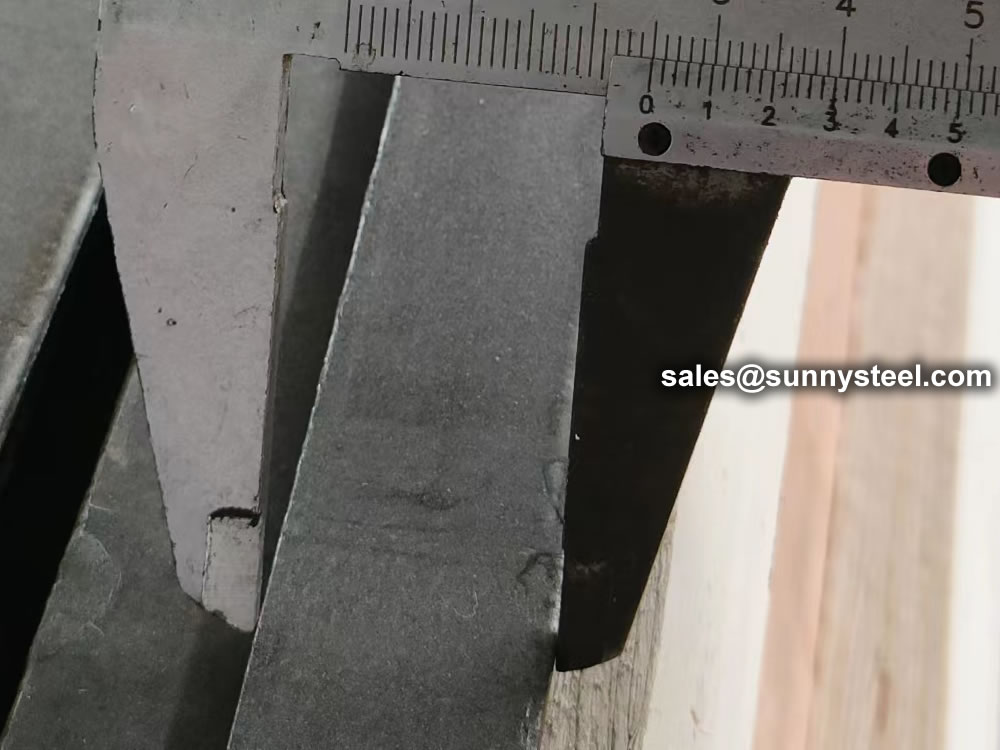
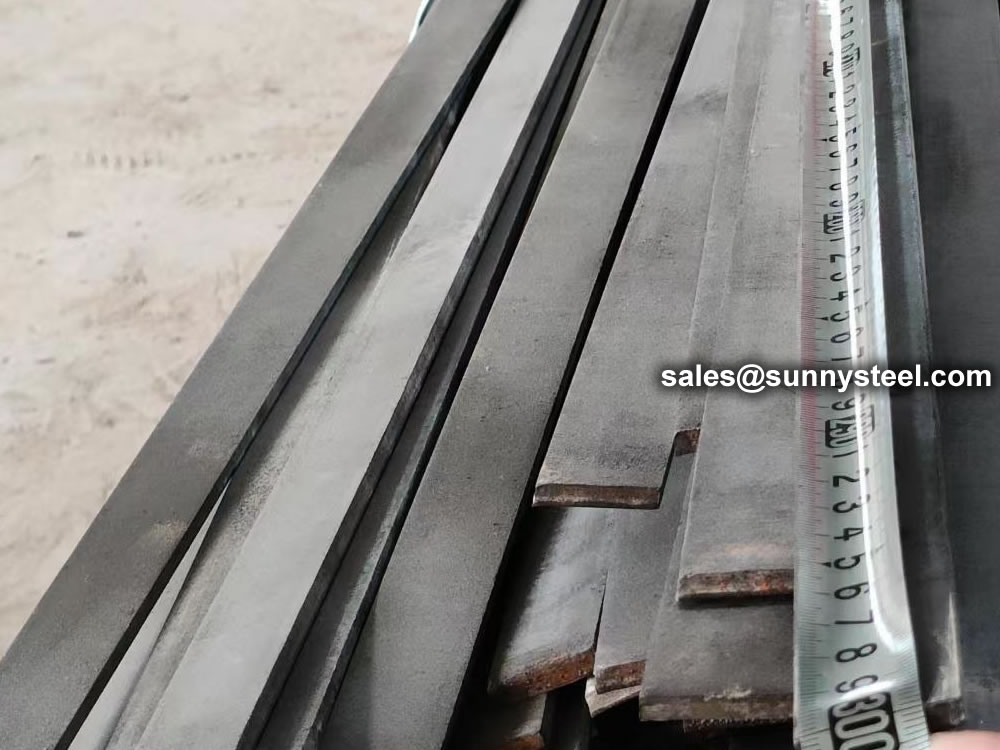
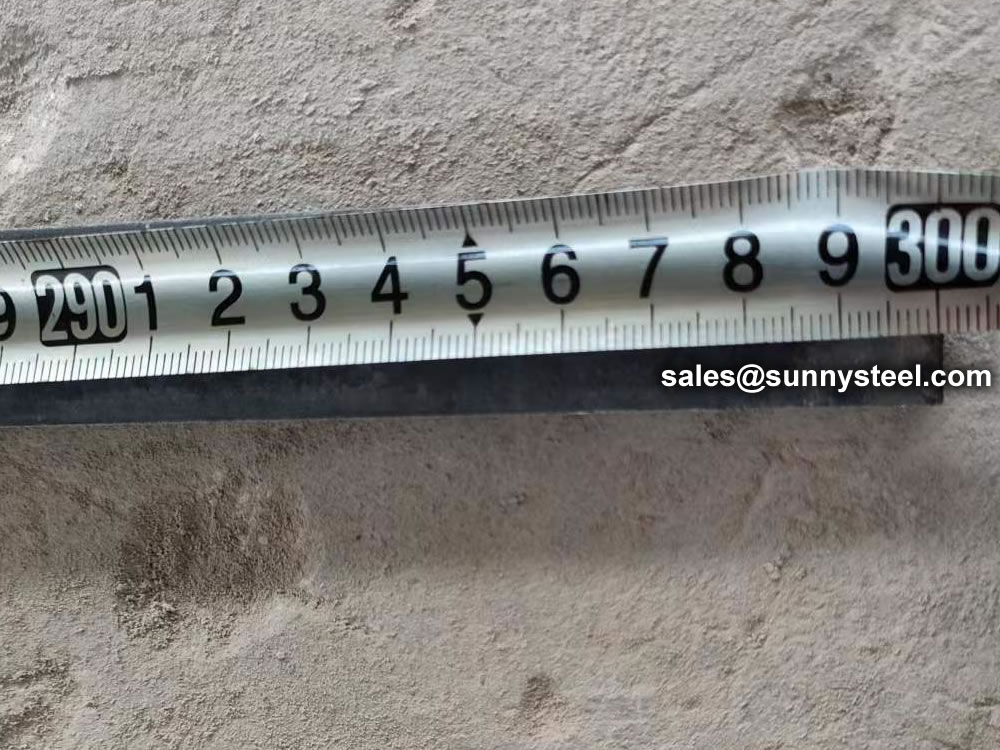
20G is a type of high-quality carbon structural steel, commonly used in the production of boiler tubes and pressure vessels due to its excellent mechanical properties and heat resistance.
20G is the steel material of GB 5310- 2008. GB 5310- 2008 standard is applicable to seamless tubes for making steam boiler whose pressure is high or higher and seamless tubes used as pipelines.
GB 5310 is a Chinese standard that outlines the specifications for seamless steel tubes used in high-pressure boilers. The designation "20G" refers to the material grade of these tubes, indicating that they are made from 20G steel, a low-carbon steel known for its excellent heat transfer properties and high tensile strength.
20G High Pressure Boiler Pipe, GB5310 20G boiler steel pipe, 20G boiler steel pipe, 20G boiler pipe
| Chemical elements | Data |
|---|---|
| Carbon | 0.17-0.23 |
| Silicon | 0.17-0.37 |
| Manganese | 0.35-0.65 |
| Phosphorus(max) | 0.03 |
| Sulfur(max) | 0.03 |
| Chromium(max) | 0.25 |
| Molybdenum(max) | 0.15 |
| Cuprum(max) | 0.2 |
| Nickel(max) | 0.25 |
| Vanadium(max) | 0.08 |
| Properties | Data |
|---|---|
| Yield Strength (Mpa) | 410-550 |
| Tensile Strength (Mpa) | 245 |
| Elongation (%) | 22 |
| W.T.(S) | Tolerance of W.T. | |
|---|---|---|
| <3.5 | +15%(+0.48mm min) | |
| -10%(+0.32mm min) | ||
| 3.5-20 | +15%,-10% | |
| >20 | D<219 | ±10% |
| D≥219 | +12.5%,-10% | |
| Column 1 | Column 2 | Column 3 | Column 4 |
|---|---|---|---|
| 83*13 | 127*10 | 168*20 | 245*27 |
| 83*14 | 127*17 | 168*32 | 245*32 |
| 89*16 | 133*16 | 180*21 | 273*27 |
| 95*9.2 | 133*16 | 180*22 | 273*30 |
| 95*10 | 133*22 | 180*25 | 273*36 |
| 95*15 | 140*18 | 180*40 | 299*30 |
| 102*14 | 146*14 | 194*21 | 325*30 |
| 114*9.2 | 152*17 | 203*26 | 377*35 |
| 114*10 | 159*16 | 219*22 | |
| 114*19 | 159*21 | 219*25 |
The 20G seamless steel pipe is mainly used for general boiler purposes, and can also be used for furnace tubes, heat exchanger tubes and seamless tubes for pipelines in petroleum refineries. As a professional boiler steel pipe supplier and manufacturer, besides the chemical composition and various mechanical properties, the 20G steel pipe we supply can also guarantee the water pressure, flattening, flaming tests as well as the surface quality and non-destructive inspection.
Annealed, Normalized, Normalized and Tempered
The steel tubes shall be delivered in a heat treated condition.
Chemical Composition Inspection, Mechanical Properties Test(Tensile Strength,Yield Strength, Elongation, Flaring, Flattening, Bending, Hardness, Impact Test), Surface and Dimension Test,No-destructive Test, Hydrostatic Test.
Oil-dip, Varnish, Passivation, Phosphating, Shot Blasting
5800mm; 6000mm; 6096mm; 7315mm; 11800mm; 12000mm; and so on.
Max length: 16000mm, also U bending can be offered.
This inventory is part of the inventory, demand and other models in stock or order materials, please contact us.
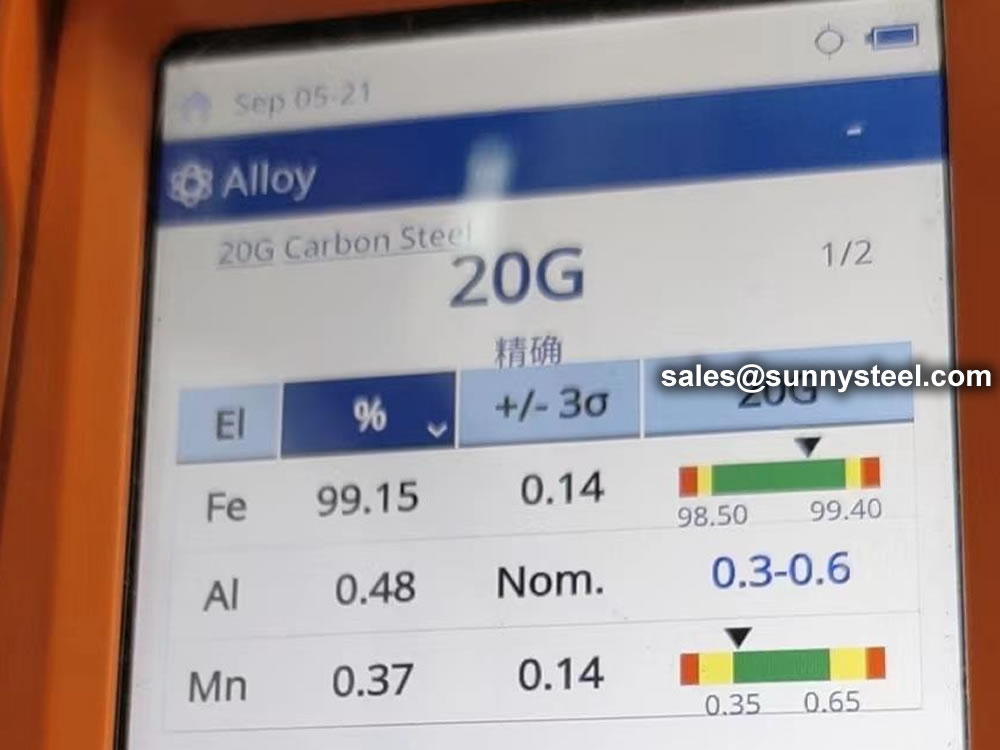
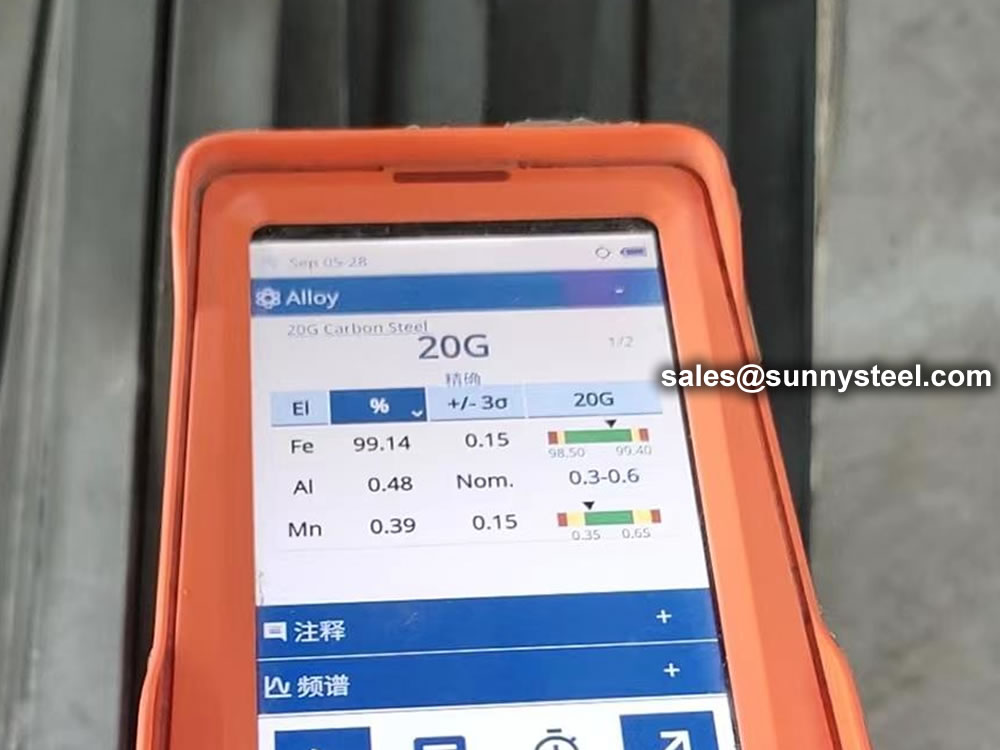
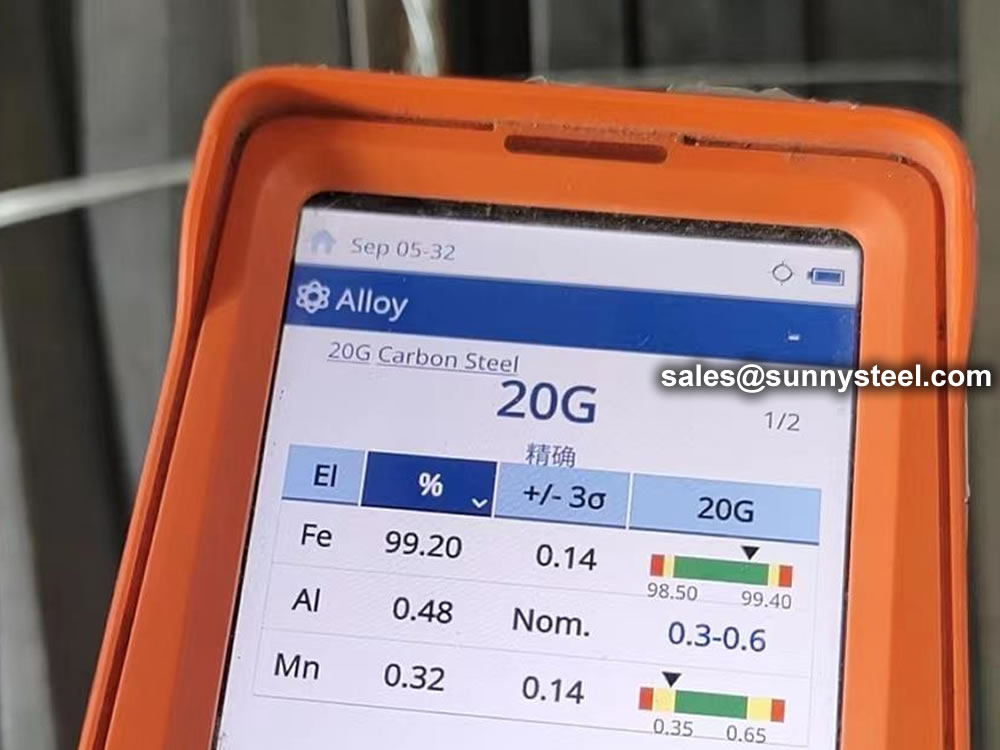
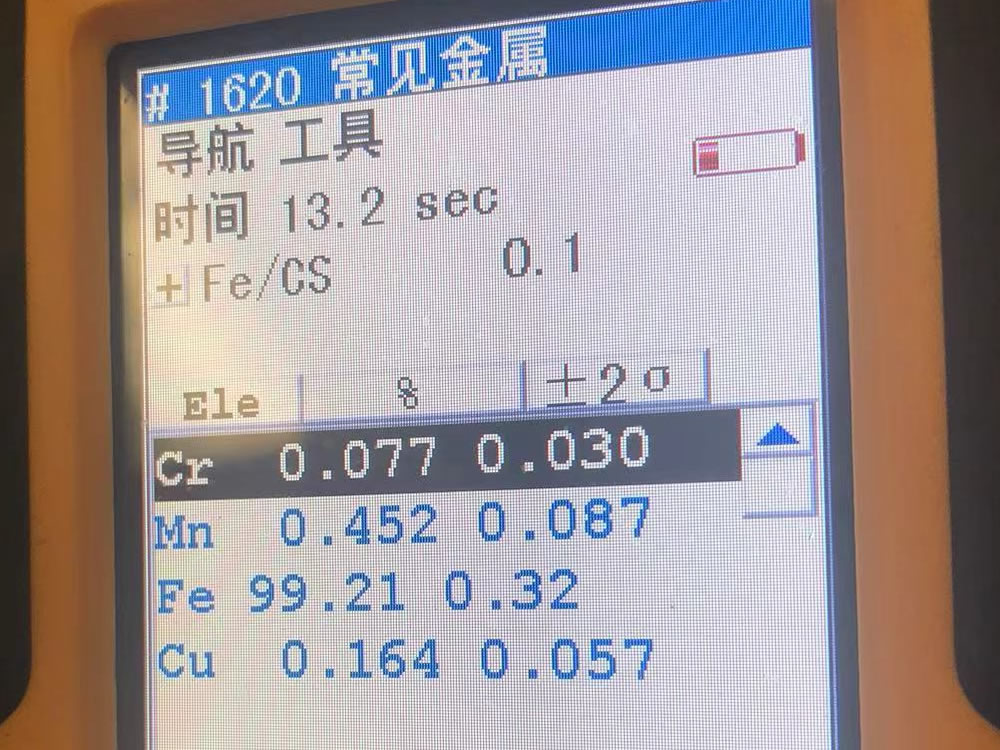
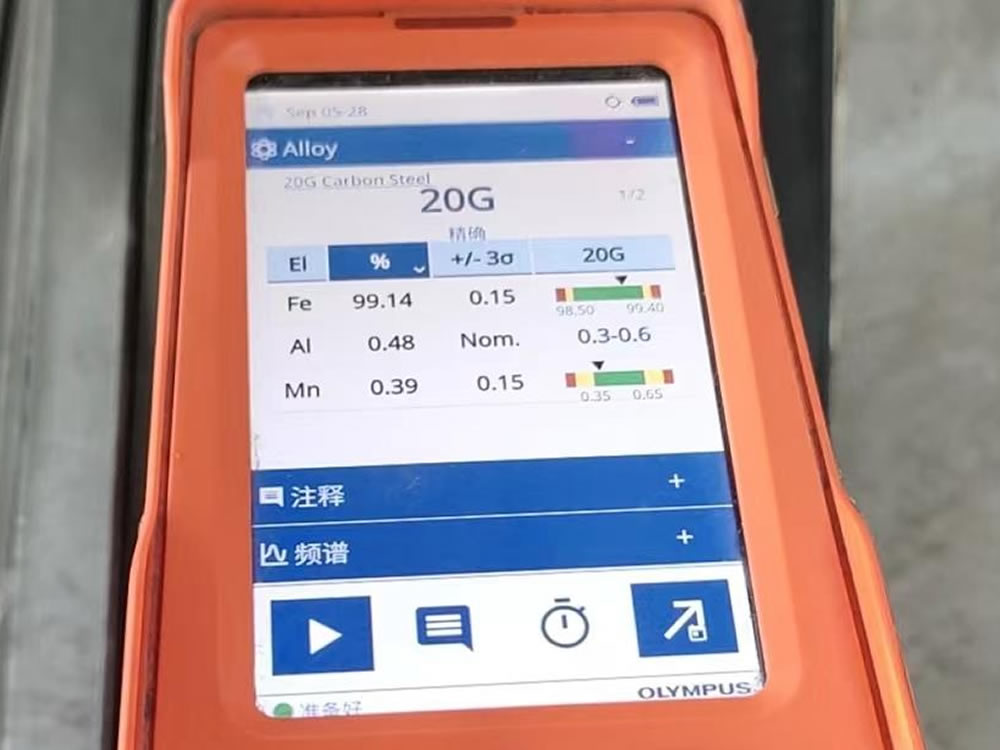

With years of expertise, we provide a diverse array of steel tube processing options. From sawing and machining tube blanks to intricate bending and upsetting operations, we actively assist you throughout your projects.
Our capabilities extend to eccentricity reduction and concentricity enhancement through turning and grinding. We excel in creating complex geometries using processes like rotary swaging and axial forming. Additionally, we offer property modifications via partial heat treatment, ensuring tailored solutions for your specific needs.
Variable wall thicknesses
Drilling / stamping / lasering
Peeling / roller burnishing
Cold forming
Cutting
Beveling
Deburring
Thread rolling / threading
Partial hardening
Turning / milling / grinding
Reducing / expanding
Swing

Alloy steel pipes are ideally suitable for chemical, petrochemicals, and other energy-related applications.
The alloy steel pipe adopts high quality carbon steel, alloy structural steel and stainless & heat resisting steel as raw material through hot rolling or cold drawn to be made.
Alloy steel can be used in process area where carbon steel has limitation such as
As an important element of steel products, alloy steel pipe can be divided into seamless steel pipe and welded steel pipe according to the manufacturing technique and tube billet shape.
Here you can see the common alloy steel grade that you will come across.
There are many kinds of materials used for transport in industrial production. Specifically we will have more choices and it is not limited to the use of alloy steel pipe. But even in the face of more choices, many people tend to choose alloy steel pipe. People make their own choices will have their own reasons. This means the alloy steel pipe application has its own advantages. Compared with transmission lines made of other materials, after it meets the basic application requirements, its quantity is lighter. Then in the practical application of alloy steel pipe, it will have more advantages because of this. Besides its physical characteristic advantage, it also has economic advantages. The wide application of alloy steel pipe is with kinds of reasons. So in practical usage, we can exploit the advantages to the full, in this way can we get more profits in these applications of alloy steel pipe.
The transportation of kinds of gases or liquids in production needs to rely on alloy steel pipe. This shows that the actual role of alloy steel pipe application is important. High temperature resistant and low temperature resistant is the tolerance of temperature. In the practical application of alloy steel pipe, there will be many materials need to be transported. However their temperatures are not the same. So this can be the basic requirement to alloy steel pipe. It needs more corrosion resistance. Corrosion resistant material is the best material during transporting, because it is corrosion resistant. So it can be used in more occasions. And it is definitely very convenient for users.
Can be 100% recycled, environmentally friendly, energy-saving, resource conservation, national strategy, national policy to encourage the expansion of the field of application of high-pressure alloy pipe. Of alloy steel pipe total consumption accounted steel in the proportion is only half of the developed countries, to expand the field of use of the alloy steel pipe to provide a wider space for the development of the industry. The future needs of the average annual growth of China’s high-pressure alloy steel pipe long products up to 10-12%.
Alloy Steel pipe contains substantial quantities of elements other than carbon such as nickel, chromium, silicon, manganese, tungsten, molybdenum, vanadium and limited amounts of other commonly accepted elements such as manganese, sulfur, silicon, and phosphorous.
Our team of experienced sales specialists proudly partners with gas and chemical processors, power generation plants, oil refineries, and related industries to offer piping components and value-added services.
The biggest advantages of alloy steel pipe can be 100% recycled, environmentally friendly, energy-saving, resource conservation, national strategy, national policy to encourage the expansion of the field of application of high-pressure alloy pipe. Of alloy tube total consumption accounted steel in the proportion is only half of the developed countries, to expand the field of use of the alloy tube to provide a wider space for the development of the industry. According to the Chinese Special Steel Association alloy pipe Branch Expert Group, the future needs of the average annual growth of China’s high-pressure alloy pipe long products up to 10-12%.
Chemical composition inspection, mechanical properties test(tensile strength,yield strength, elongation, flaring, flattening, bending, hardness, impact test), surface and dimension test,no-destructive test, hydrostatic test.
identification of the chemical composition of the metal used to manufacture the fitting. Uses PMI sensors, including X-ray fluorescence or optical emission spectrometry.
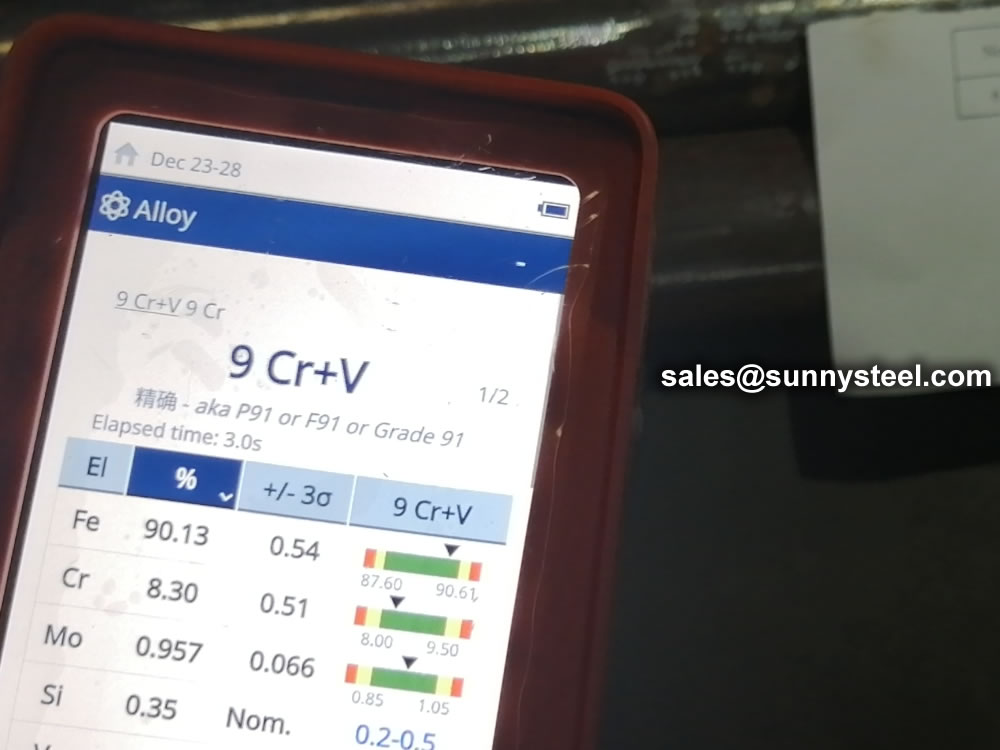
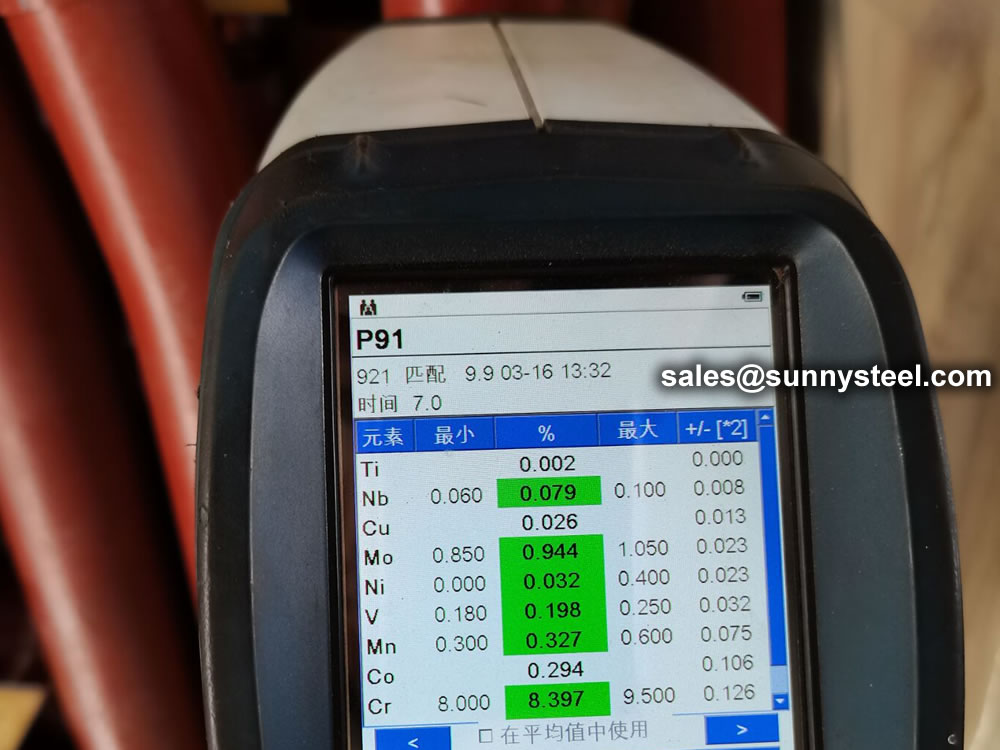
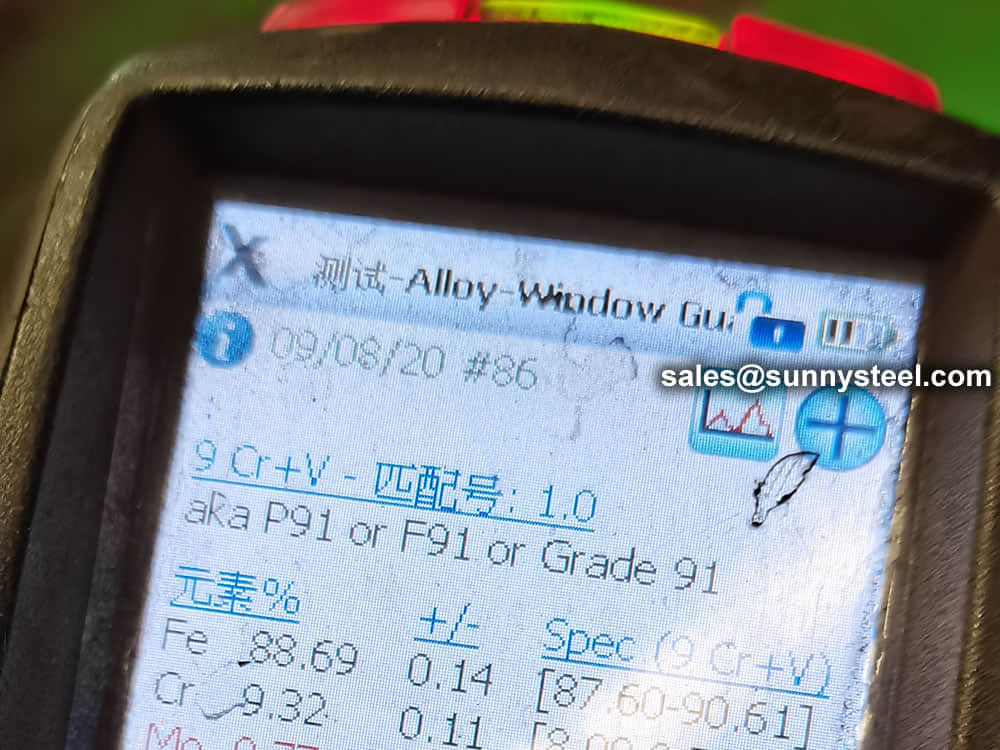
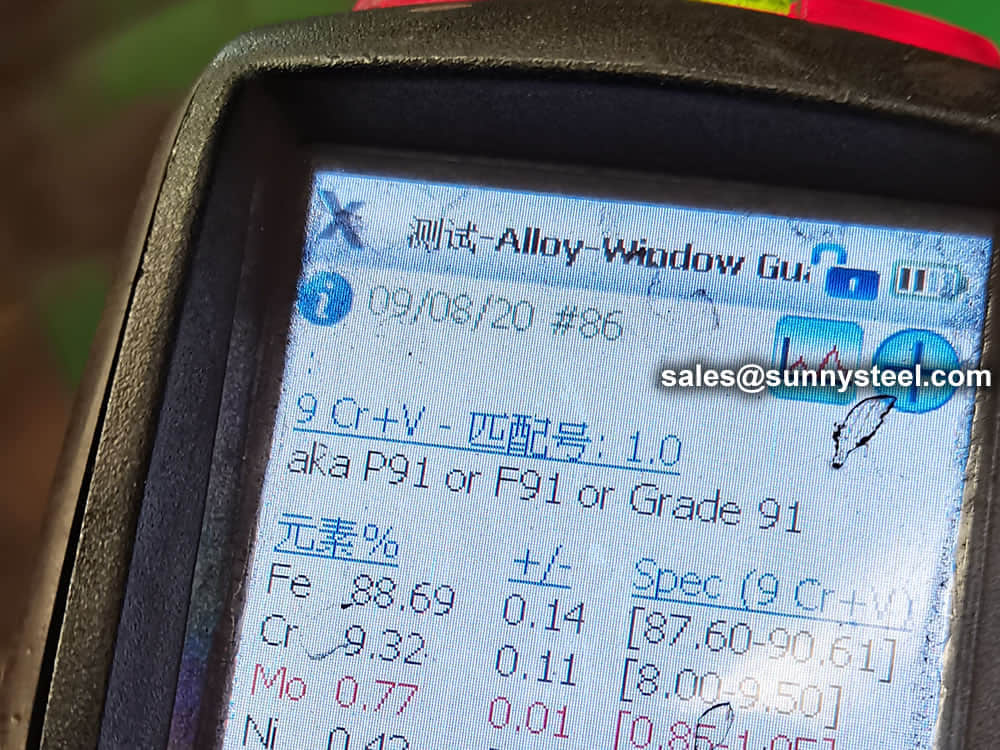
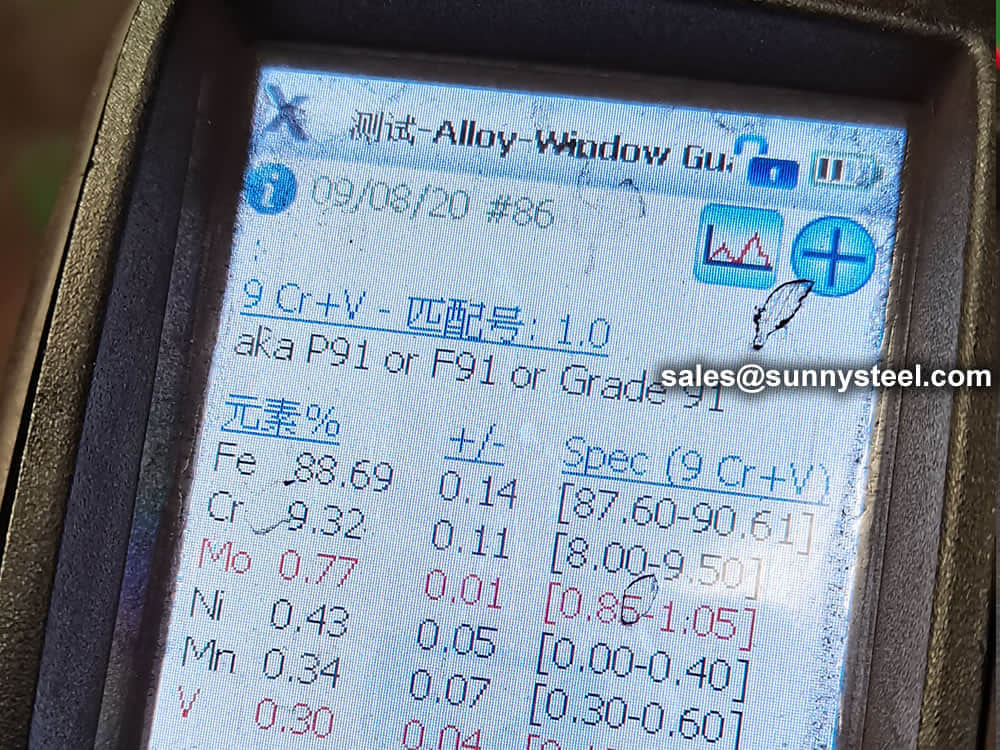

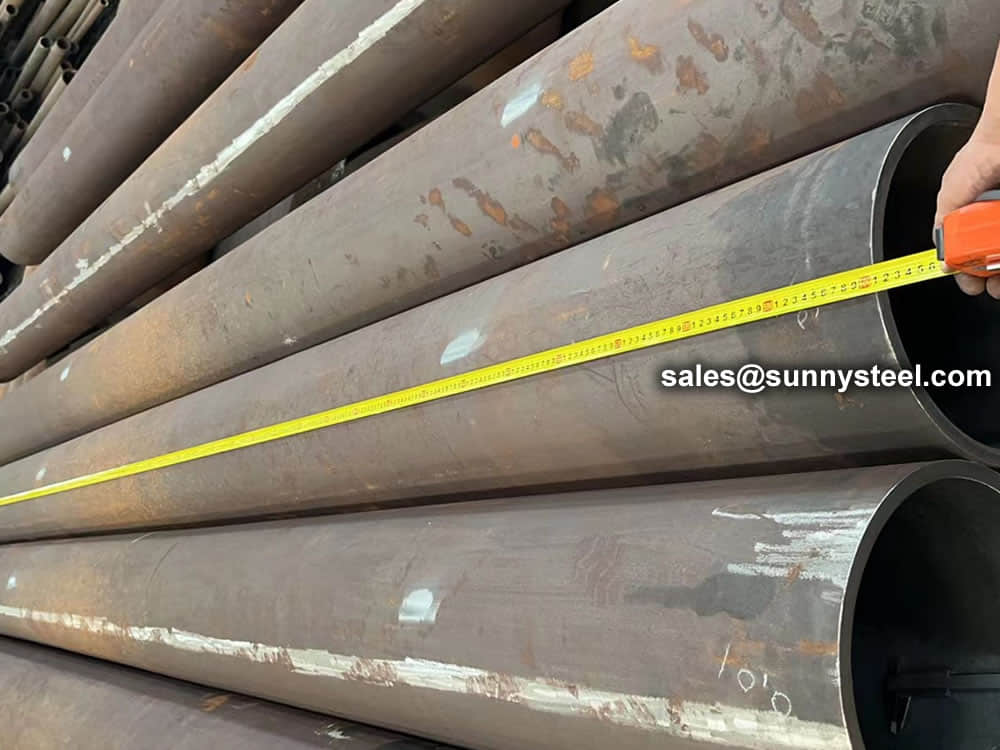
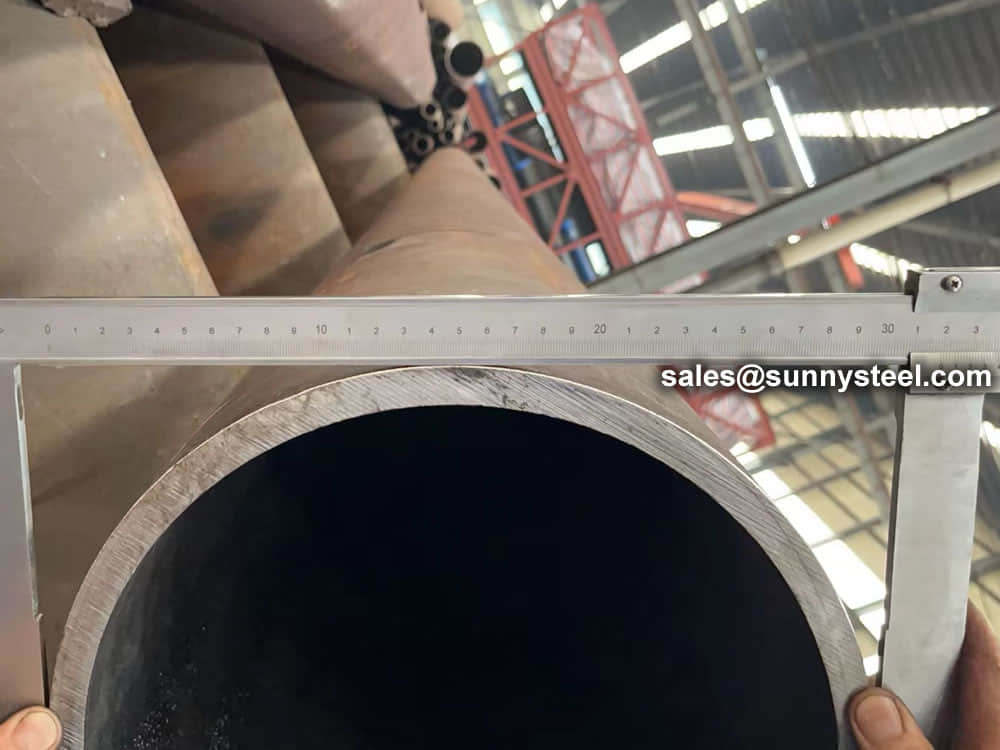
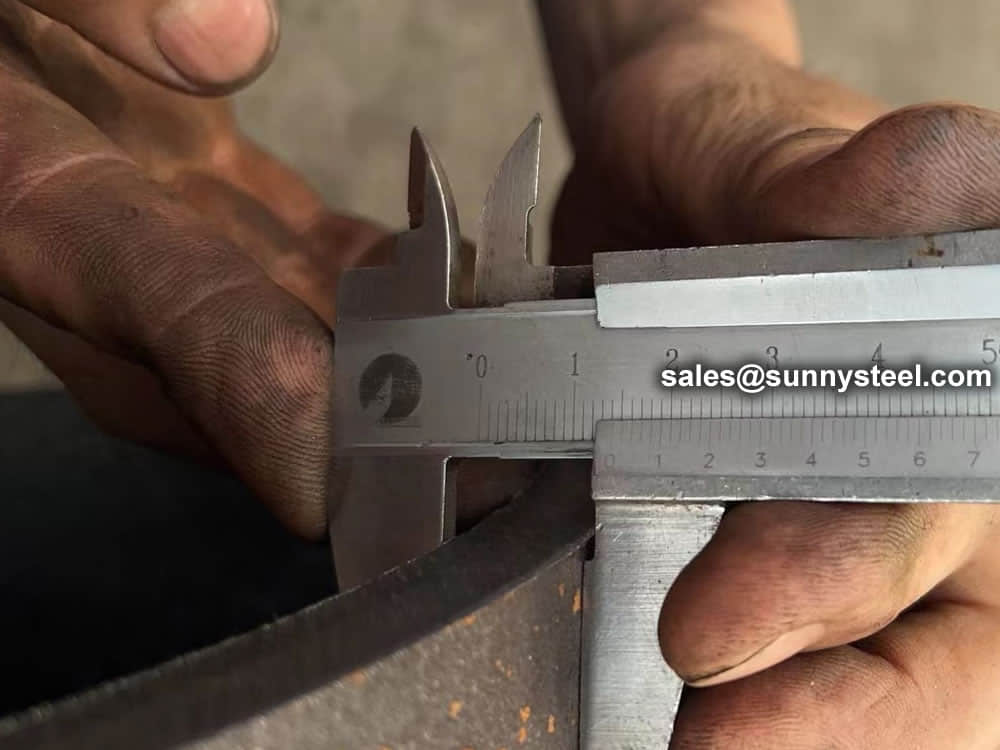
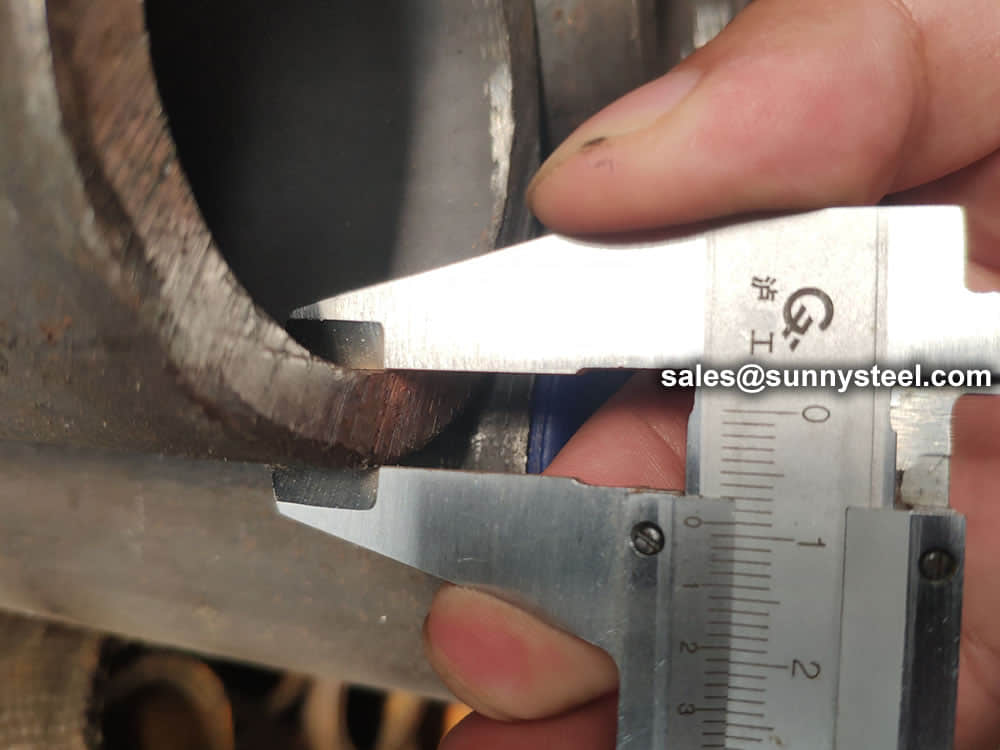
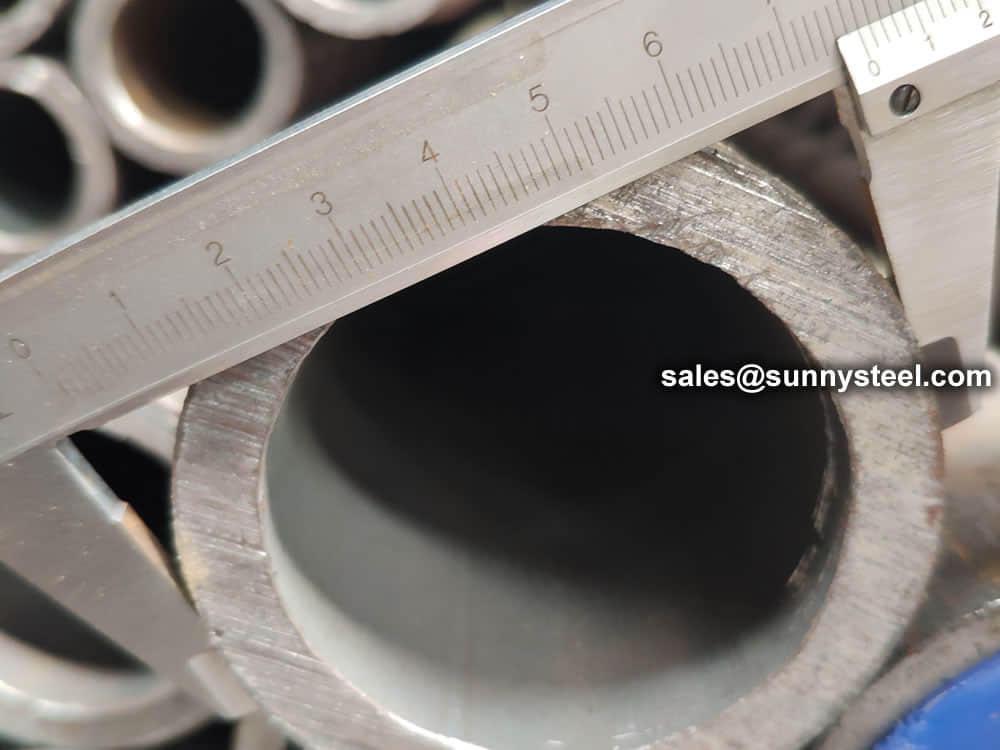
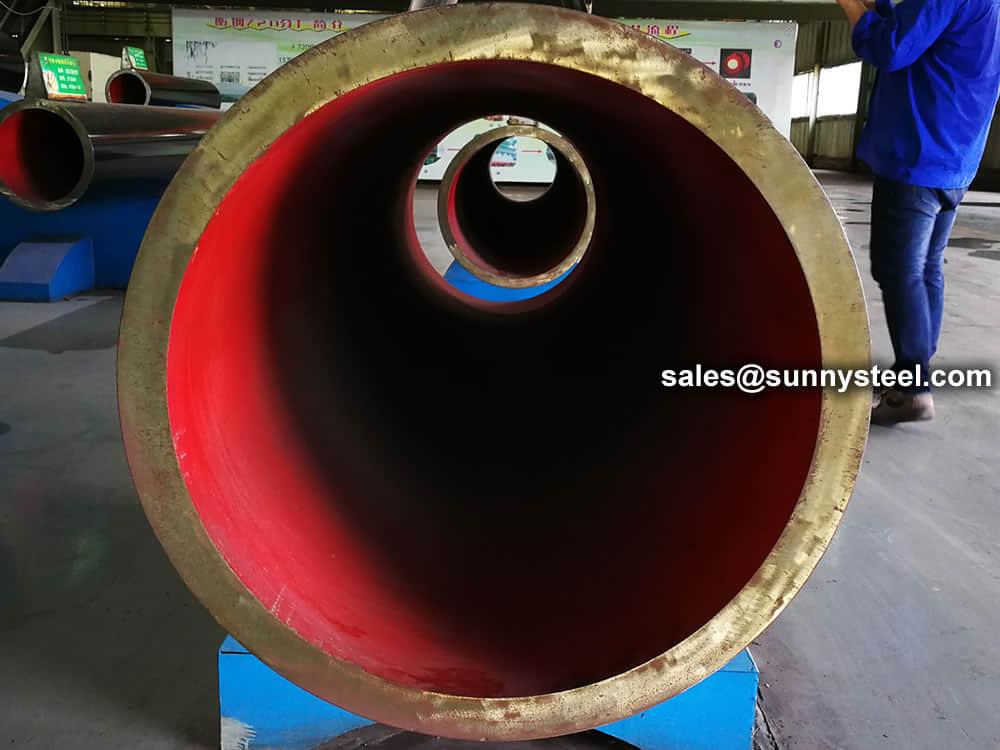
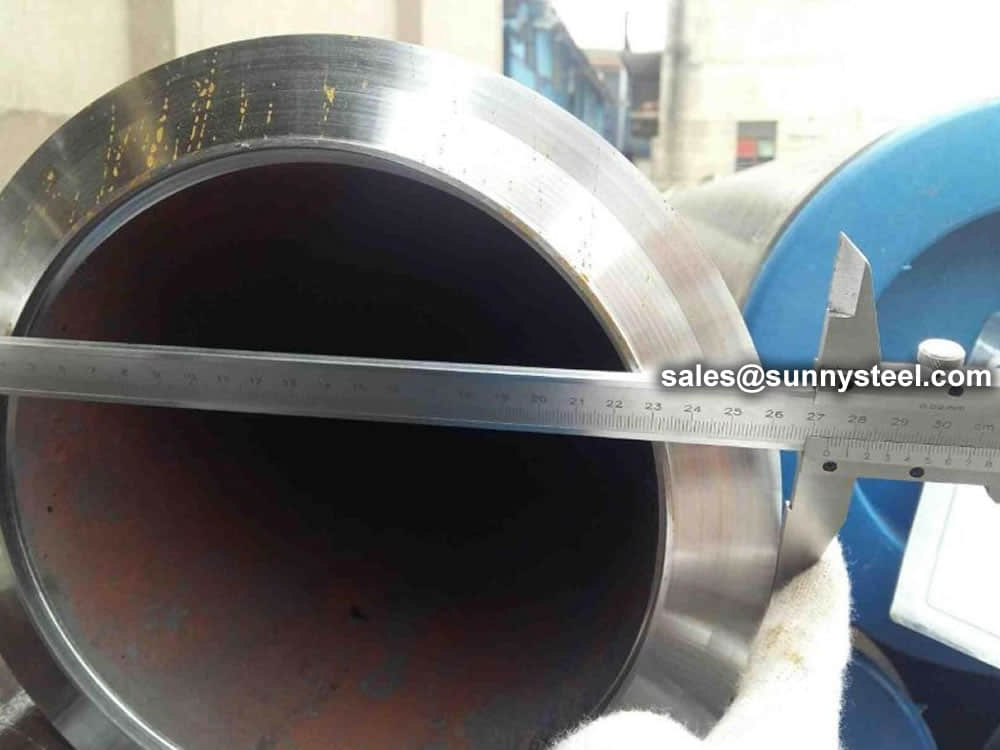
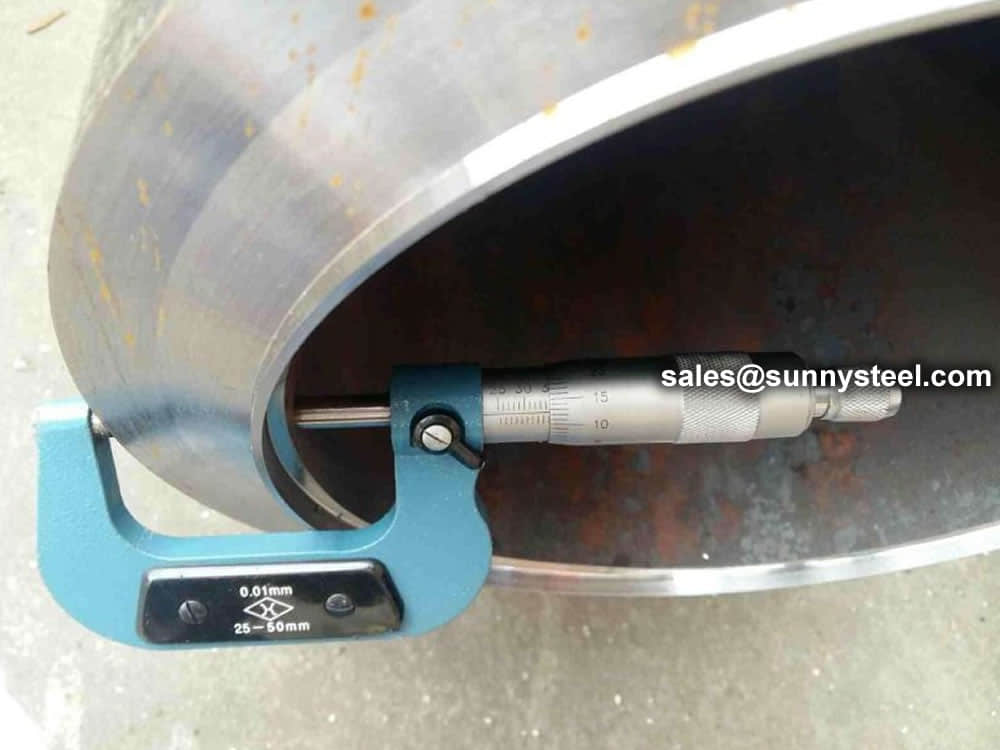
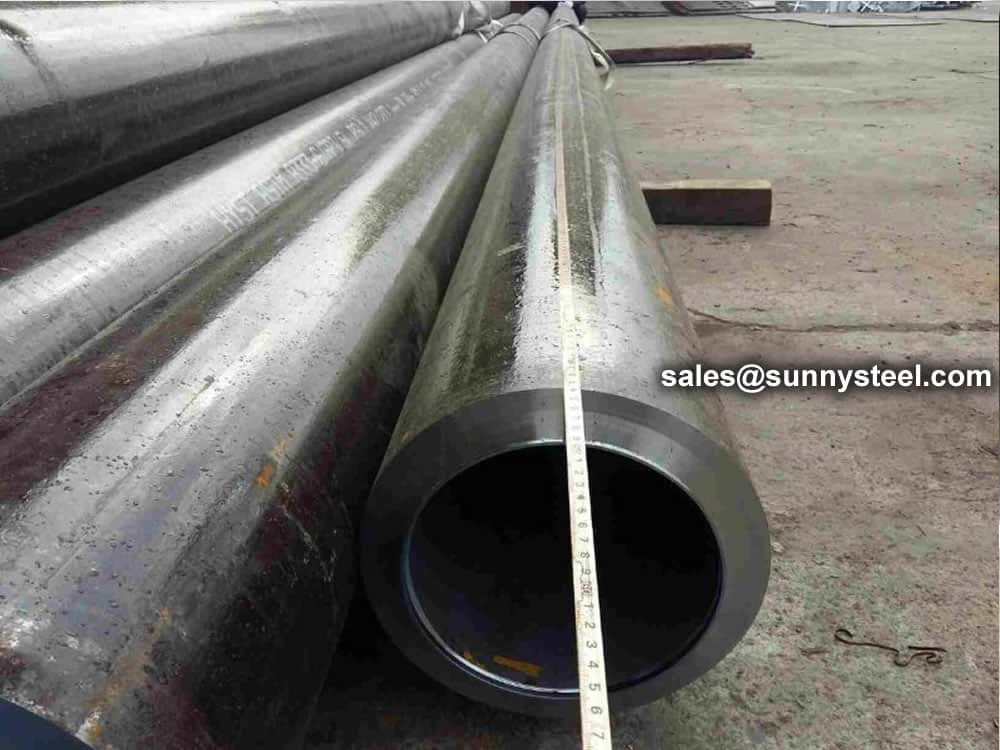
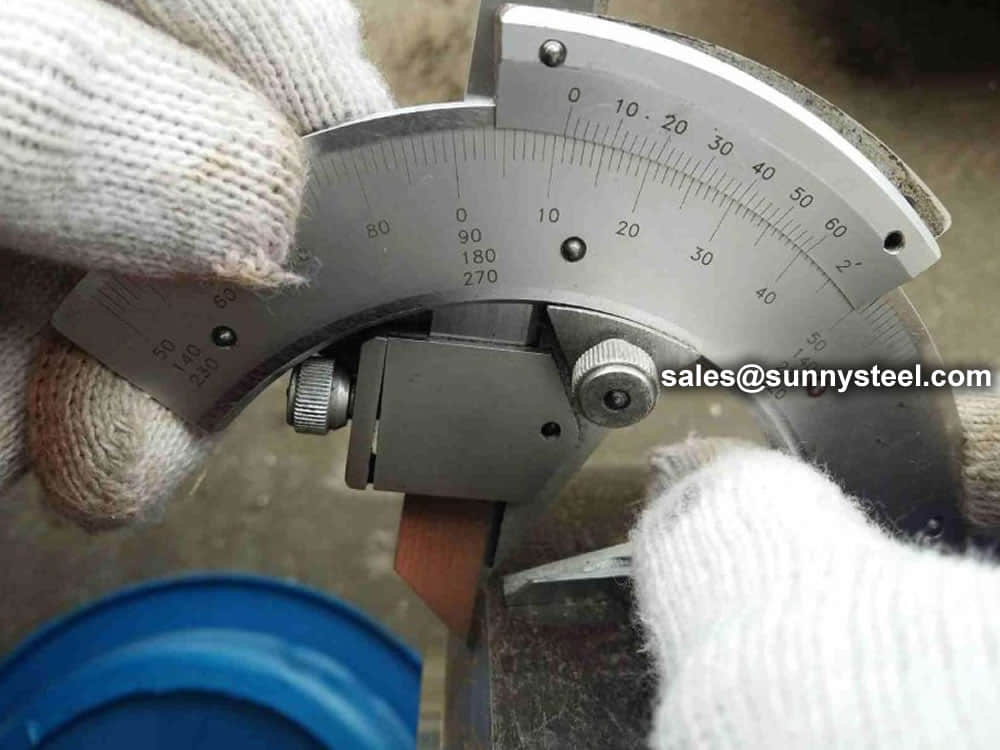
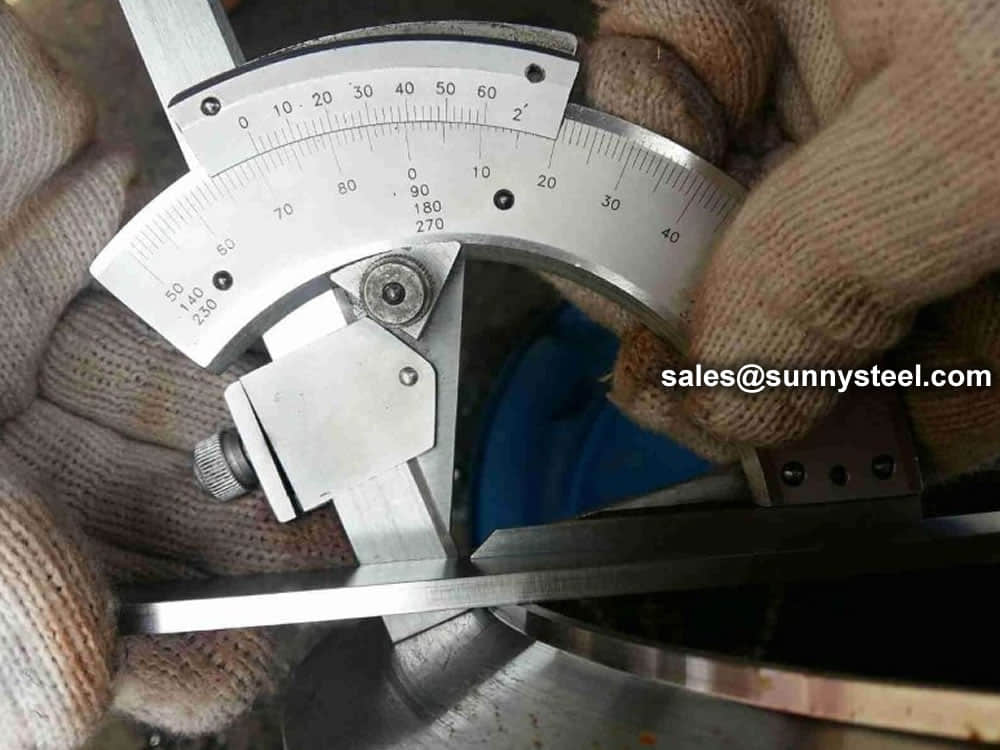
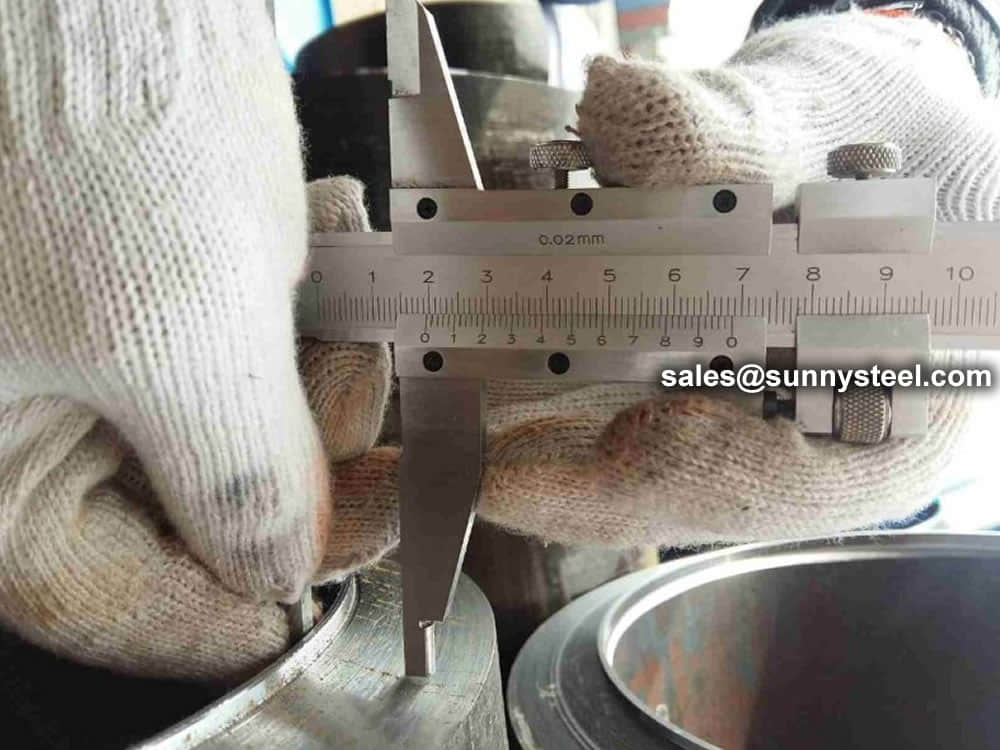
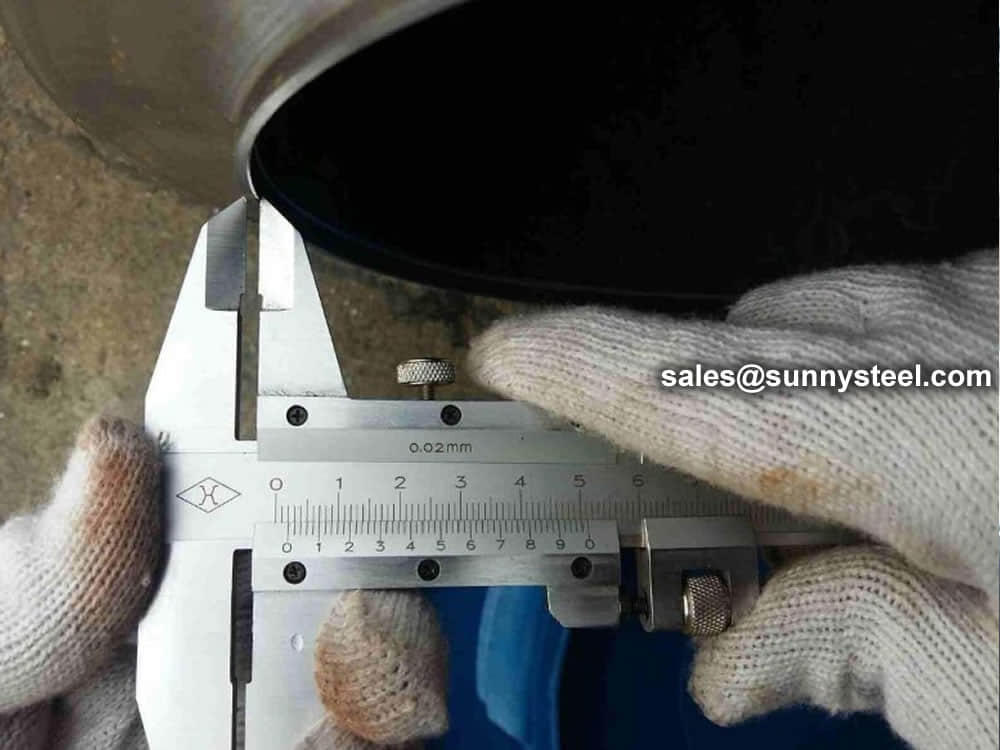
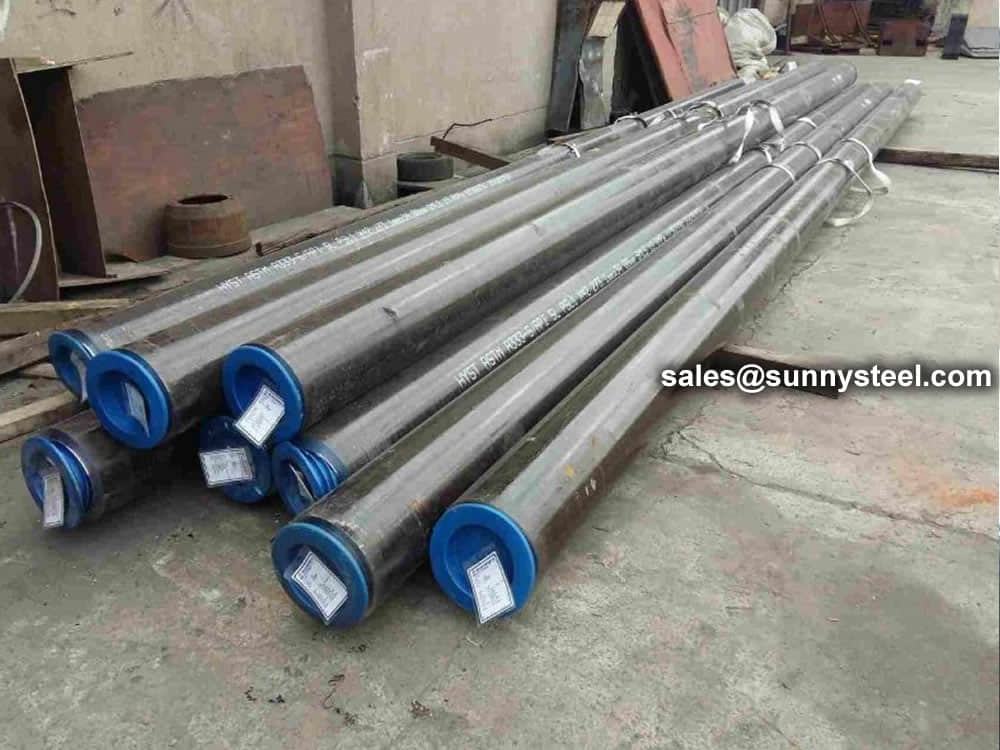
Steel pipe delivery status(condition): cold / hard (BK), cold / soft (BKW), after cold stress relief annealing (BKS), annealing (GBK), normalized (NBK).
| Term | Symbol | Explanation |
|---|---|---|
| Cold-finished/hard (cold-finished as-drawn) | BK | No heat treatment after the last cold-forming process. The tubes therefore have only low deformability. |
| Cold-finished/soft (lightly cold-worked) | BKW | After the last heat treatment there is a light finishing pass (cold drawing) With proper subsequent processing, the tube can be cold-formed (e.g. bent, expanded) within certain limits. |
| Annealed | GBK | After the final cold-forming process the tubes are annealed in a controlled atmosphere or under vacuum. |
| Normalized | NBK | The tubes are annealed above the upper transformation point in a controlled atmosphere or under vacuum. |
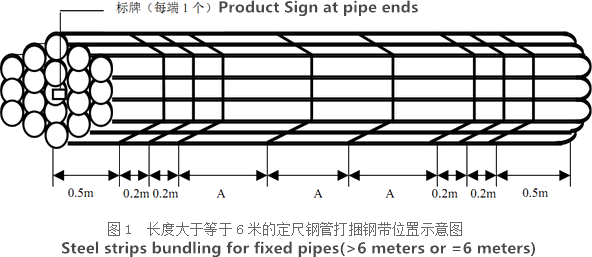
The general cold strip mills, volume should go through continuous annealing (CAPL unit) to eliminate cold hardening and rolling stress, or batch annealing reach the mechanical properties of the corresponding standard specifies. Cold rolled steel surface quality, appearance, dimensional accuracy better than hot-rolled plate, and right-rolled thin product thickness is about 0.18mm, so the majority of users favor.
Cold rolled steel coil substrate products deep processing of high value-added products. Such as electro-galvanized, hot dip galvanized, electro-galvanized fingerprint resistant, painted steel roll damping composite steel, PVC laminating steel plates, etc., so that the excellent quality of these products has a beautiful, high resistance to corrosion, has been widely used.
Cold rolled steel coil finishing after annealing, cut the head, tail, trimming, flattening, smooth, heavy volume, or longitudinal clipboard. Cold-rolled products are widely used in automobile manufacturing, household electrical appliances, instruments, switches, buildings, office furniture and other industries. Steel plate strapping package weight of 3 to 5 tons. Flat sub-volume typically 3 to 10 tons / volume. Coil diameter 6m.
Bare packing/bundle packing/crate packing/wooden protection at the both sides of tubes and suitably protected for sea-worthly delivery or as requested.
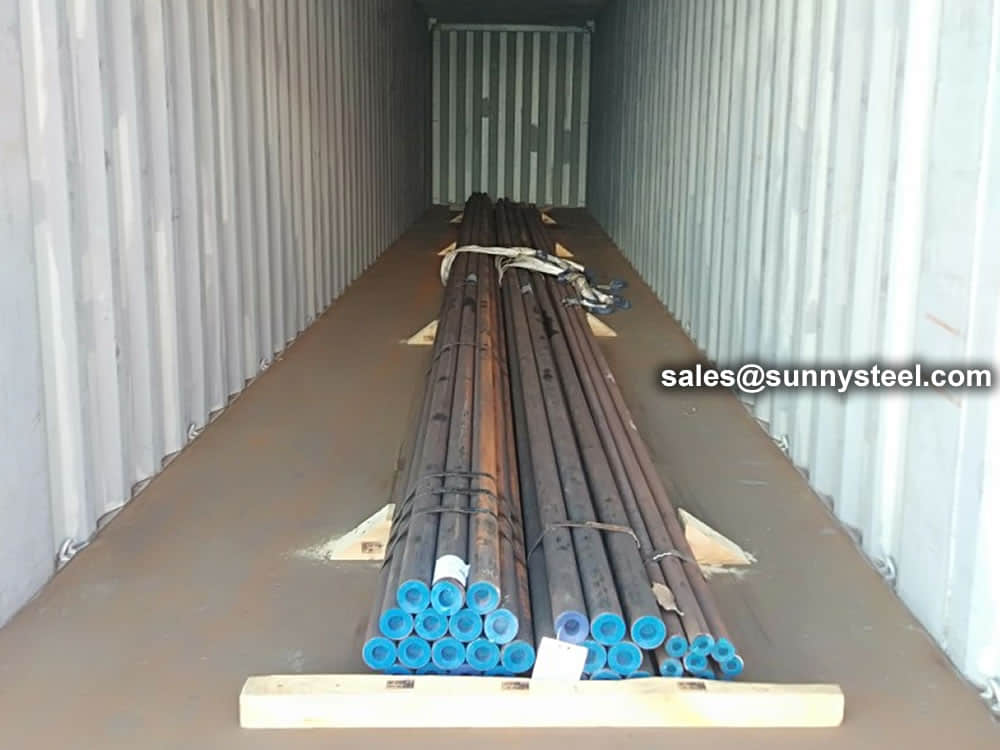
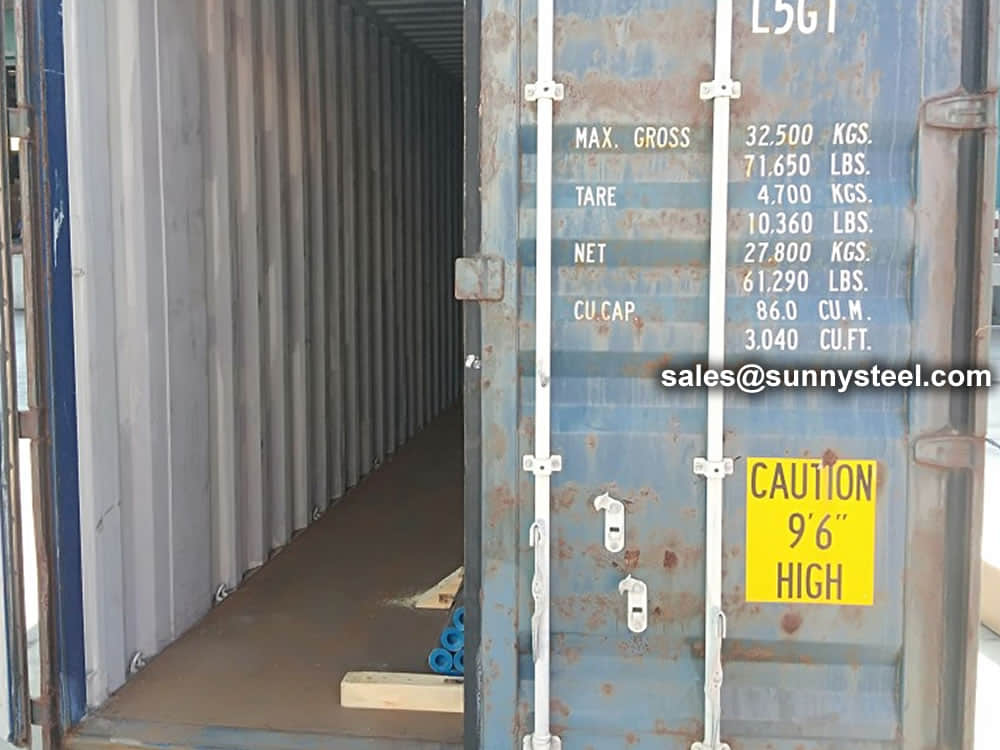
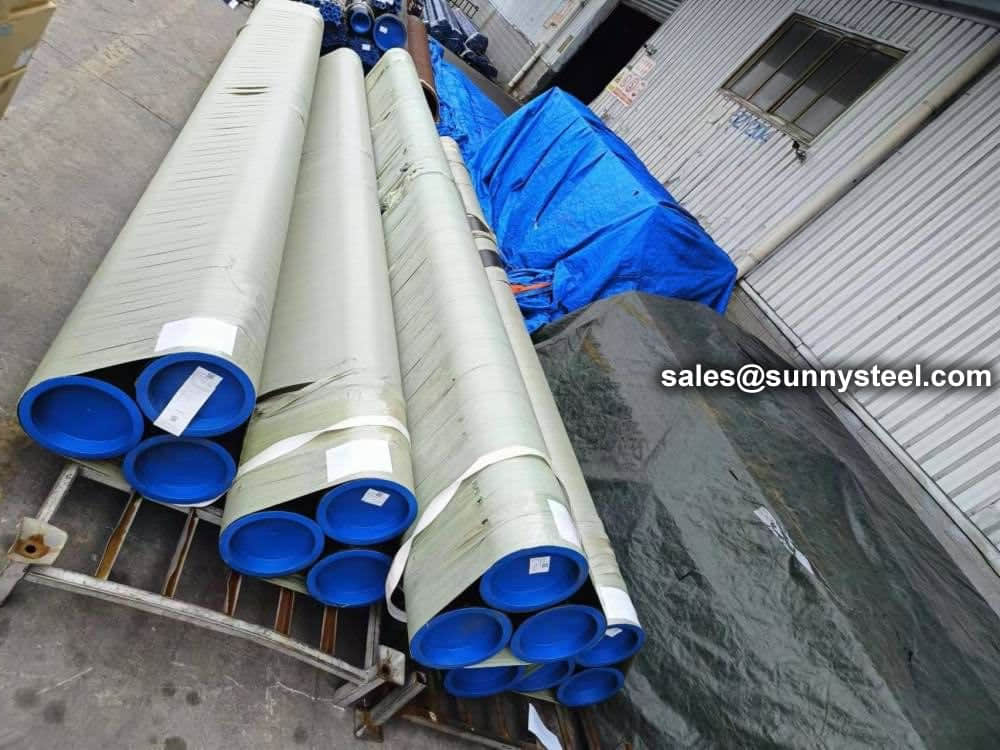
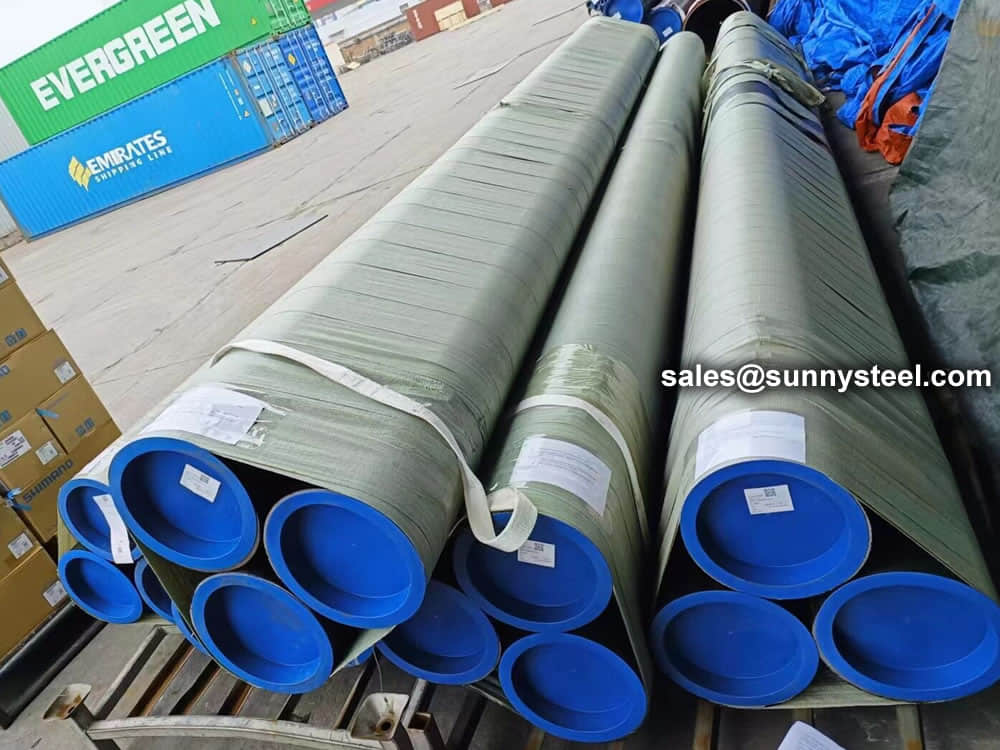
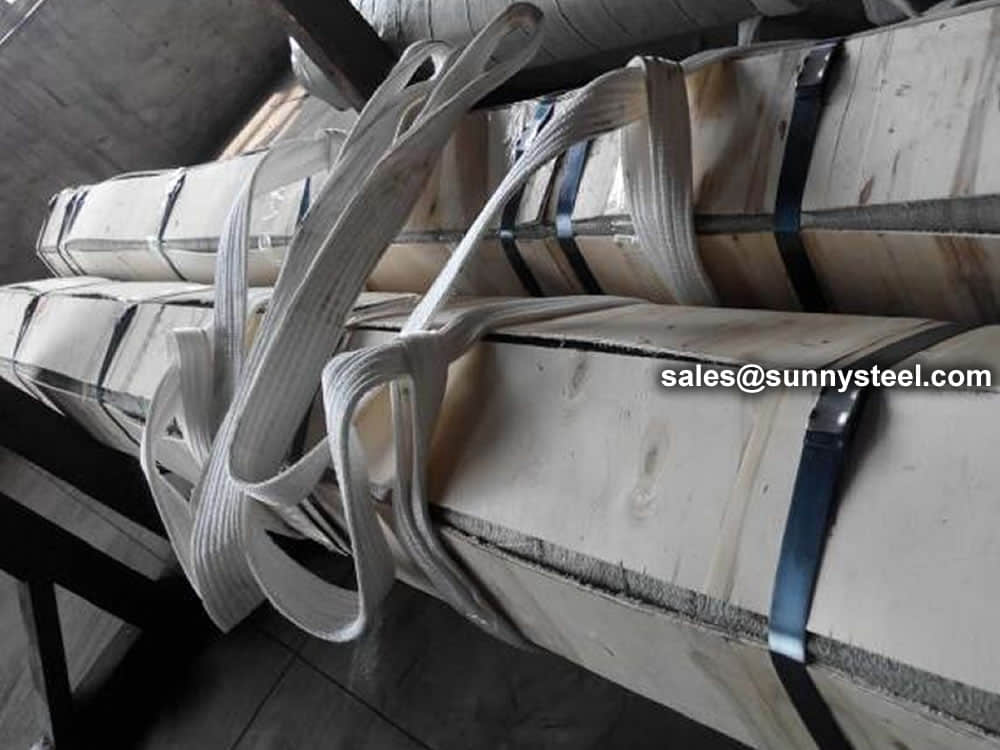
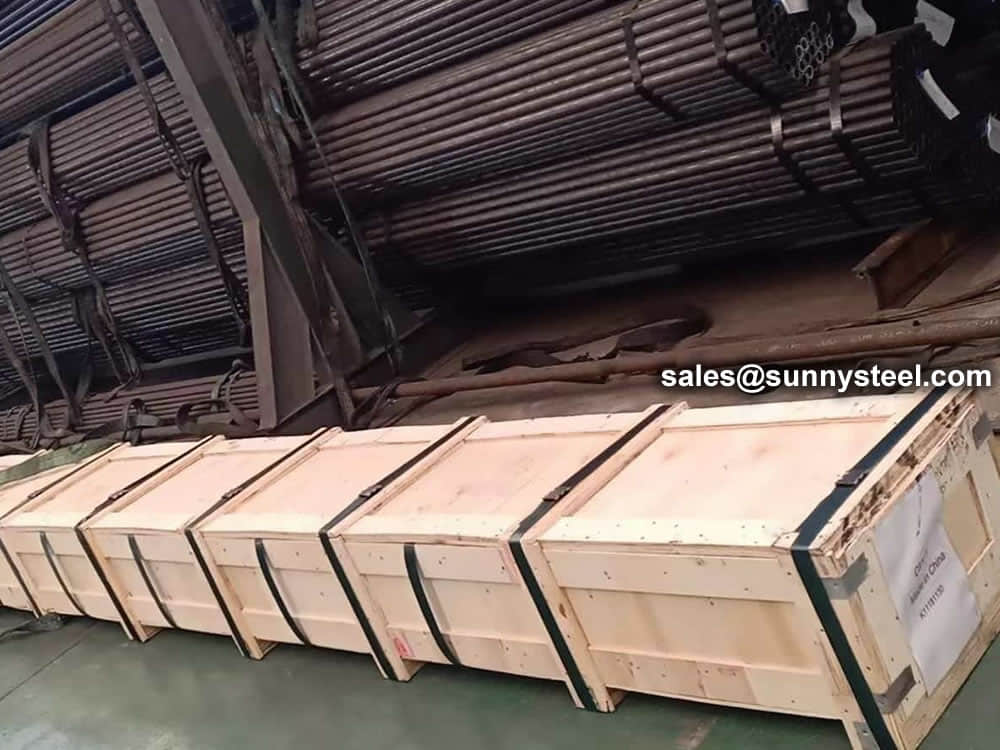
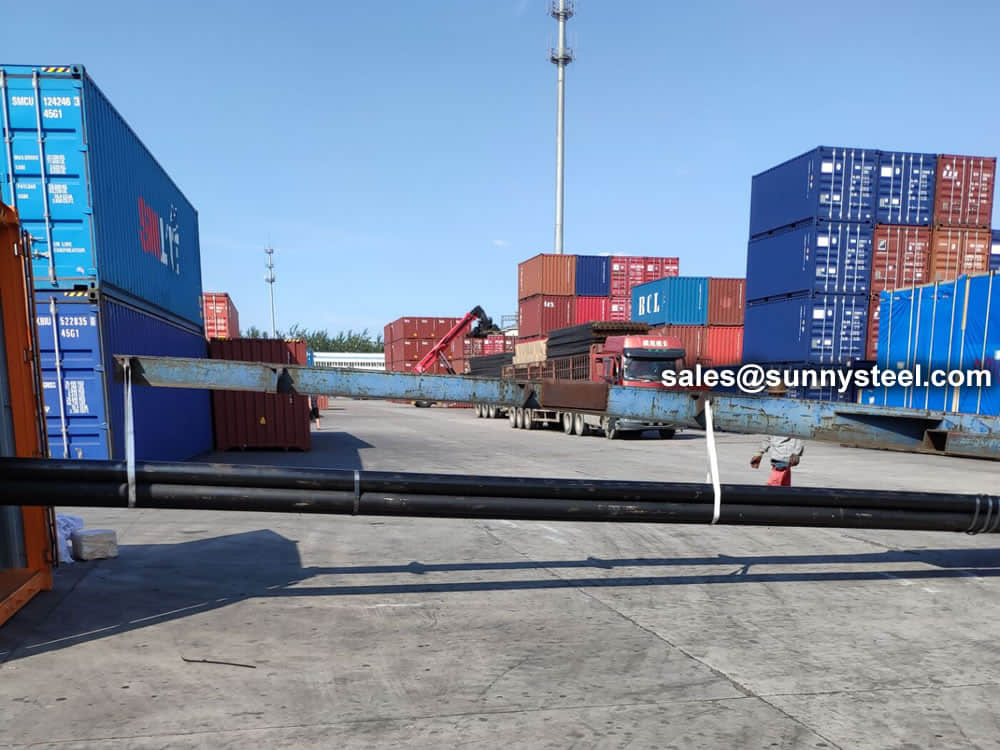
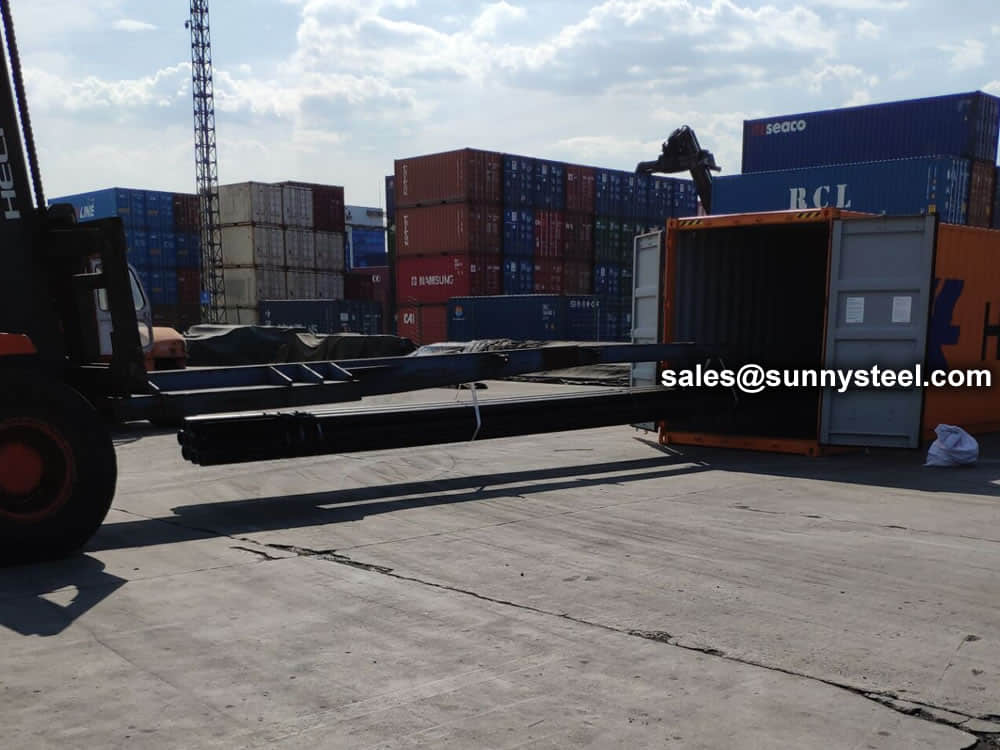
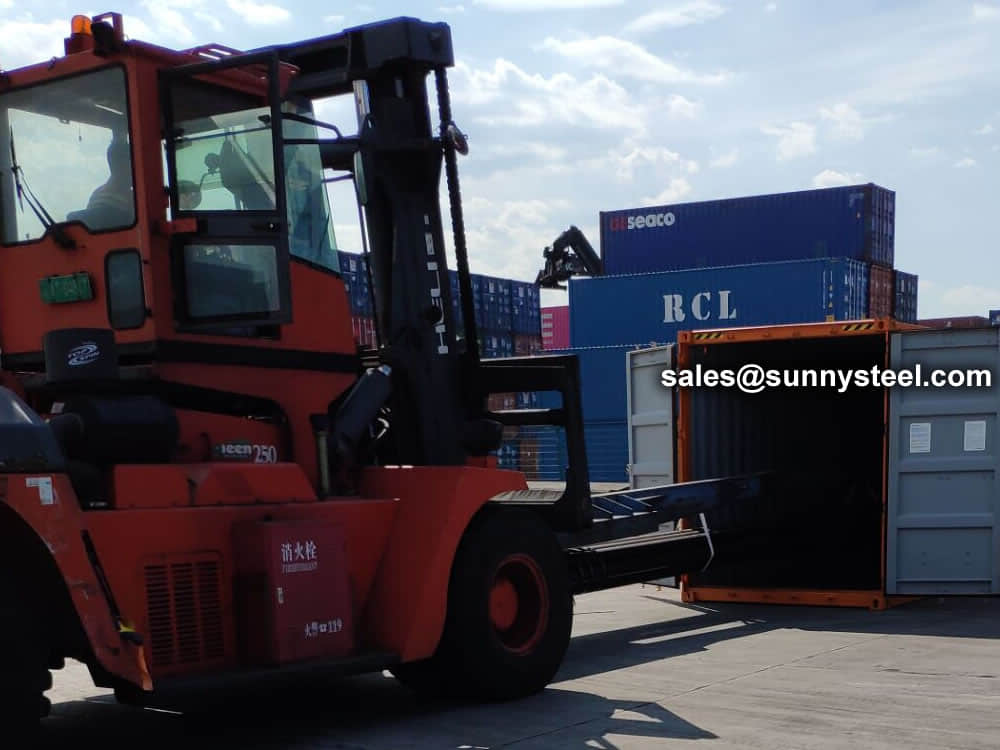
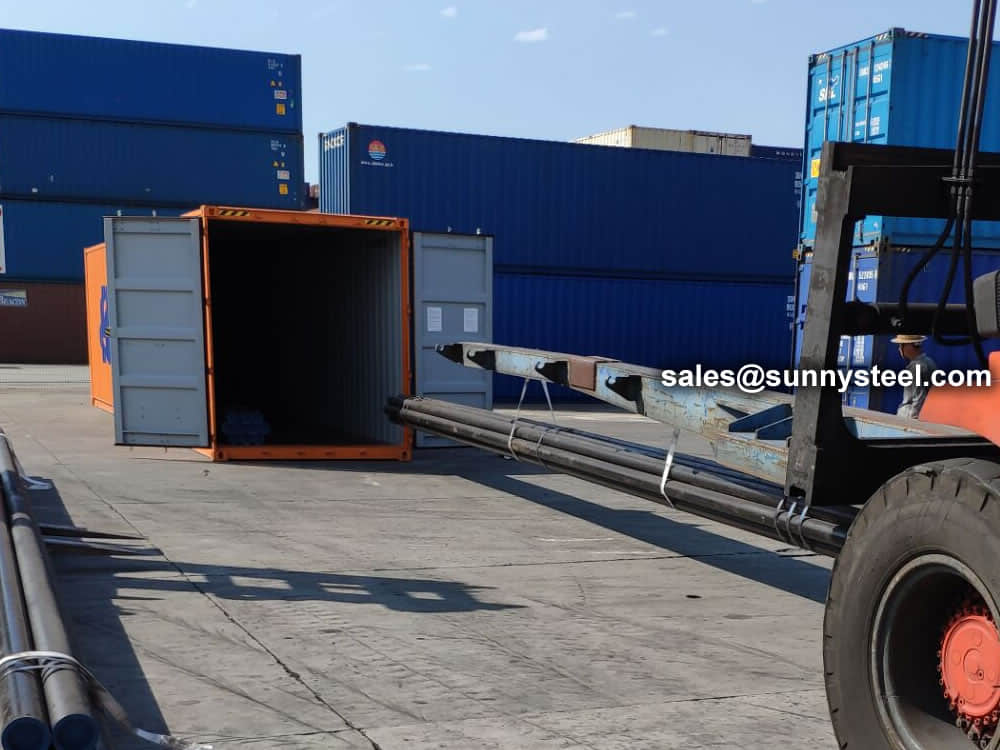
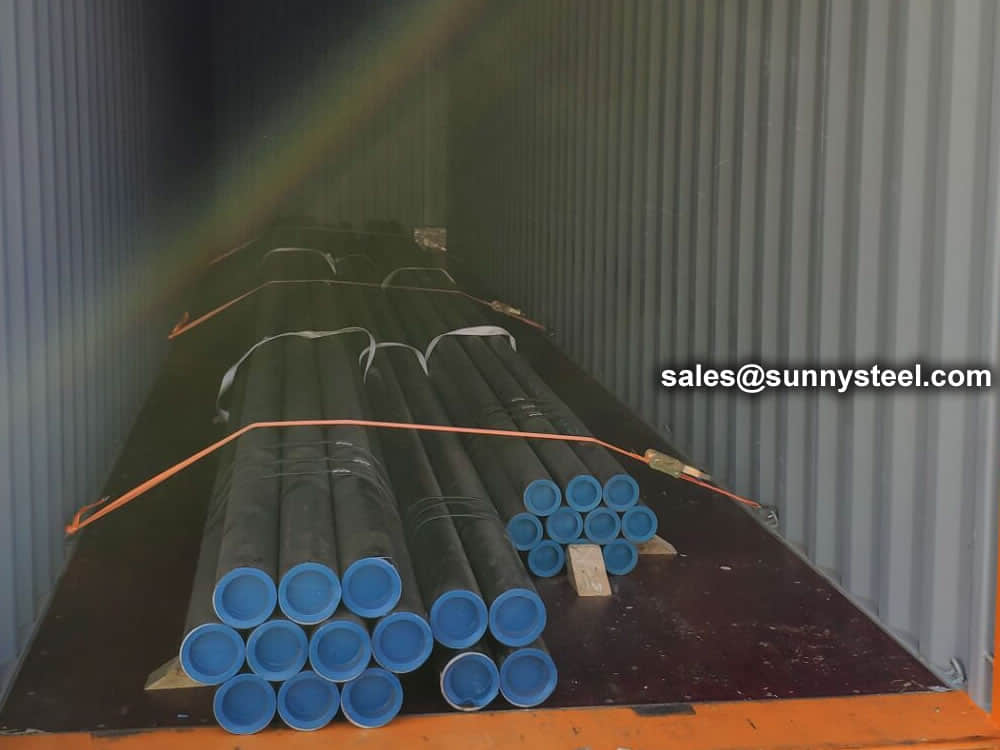
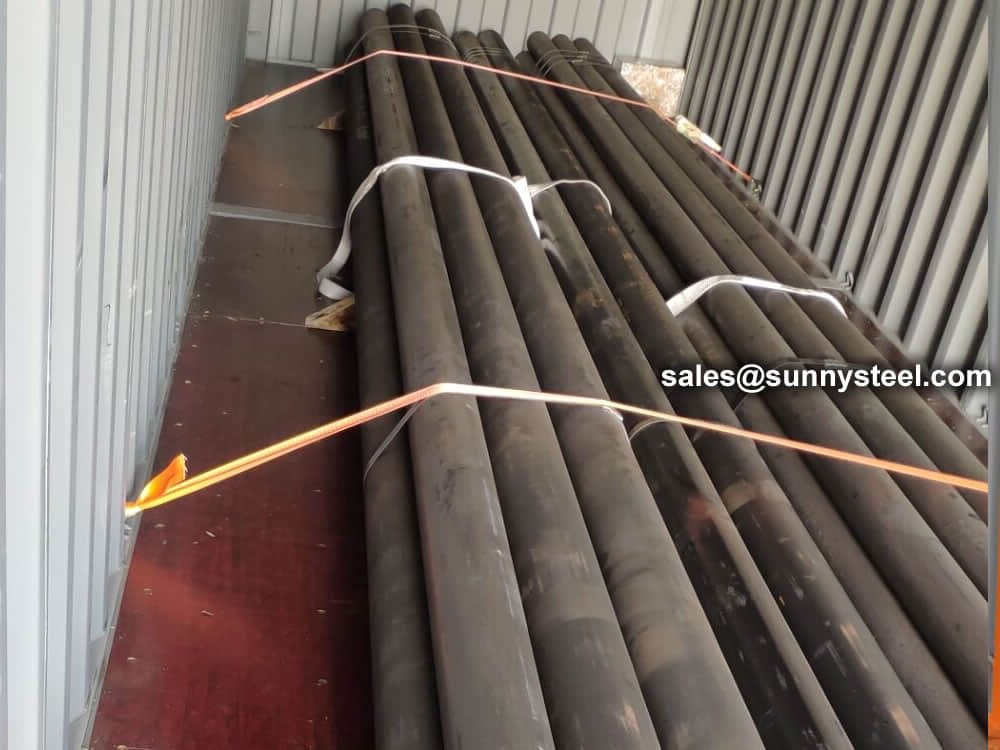
There are probably hundreds of different methods for packing a pipe, and most of them have merit, but there are two principles that are vital for any method to work prevent rusting and Sea transportation security.
Our packing can meet any needs of the customers.
Our team of experienced sales specialists proudly partners with gas and chemical processors, power generation plants, oil refineries, and related industries to offer piping components and value-added services.
Alloy steels are made by combining carbon steel with one or several alloying elements, such as manganese, silicon, nickel, titanium, copper, chromium and aluminum. These metals are added to produce specific properties that are not found in regular carbon steel. The elements are added in varying proportions (or combinations) making the material take on different aspects such as increased hardness, increased corrosion resistance, increased strength, improved formability (ductility); the weldability can also change.
Commonly used alloying elements and their effects are listed in the table given below.
| Alloying Elements | Effect on the Properties |
|---|---|
| Chromium | Increases Resistance to corrosion and oxidation. Increases hardenability and wear resistance. Increases high temperature strength. |
| Nickel | Increases hardenability. Improves toughness. Increases impact strength at low temperatures. |
| Molybdenum | Increases hardenability, high temperature hardness, and wear resistance. Enhances the effects of other alloying elements. Eliminate temper brittleness in steels. Increases high temperature strength. |
| Manganese | Increases hardenability. Combines with sulfur to reduce its adverse effects. |
| Vanadium | Increases hardenability, high temperature hardness, and wear resistance. Improves fatigue resistance. |
| Titanium | Strongest carbide former. Added to stainless steel to prevent precipitation of chromium carbide. |
| Silicon | Removes oxygen in steel making. Improves toughness. Increases hardness ability |
| Boron | Increases hardenability. Produces fine grain size. |
| Aluminum | Forms nitride in nitriding steels. Produces fine grain size in casting. Removes oxygen in steel melting. |
| Cobalt | Increases heat and wear resistance. |
| Tungsten | Increases hardness at elevated temperatures. Refines grain size. |

When you partner with Sunny Steel, you can stop worrying about meeting deadlines thanks to our responsive and timely service. You'll also say goodbye to unnecessary shopping around. Instead, you'll get white glove service from an expert who understands your needs and can get you the materials you need quickly.
